Let's learn about Adam Smith via these 72 free stories. They are ordered by most time reading created on HackerNoon. Visit the /Learn Repo to find the most read stories about any technology.
1. The Essays of Adam Smith: Part I, SEC. II
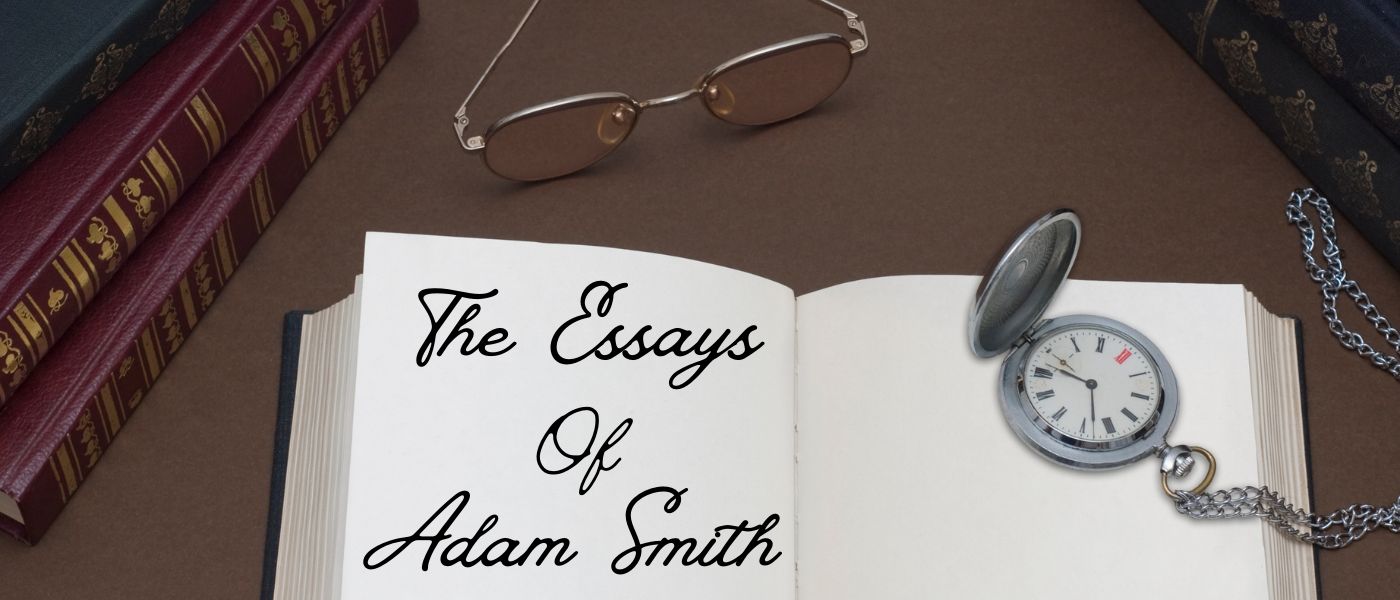 This mediocrity, however, in which the point of propriety consists, is different in different passions.
This mediocrity, however, in which the point of propriety consists, is different in different passions.
2. The Essays of Adam Smith: Part II, SEC. I, Chapter III
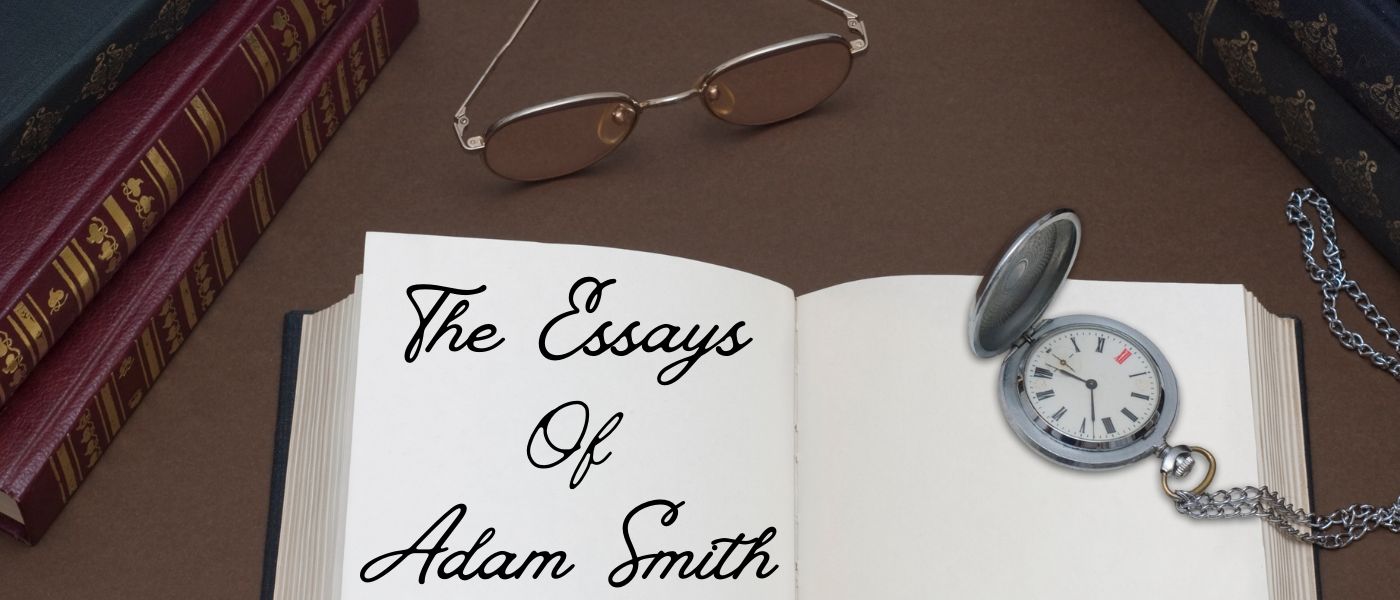 Little gratitude seems due in the one case, and all sort of resentment seems unjust in the other.
Little gratitude seems due in the one case, and all sort of resentment seems unjust in the other.
3. The Essays of Adam Smith: Part I, SEC. I, Chapter III
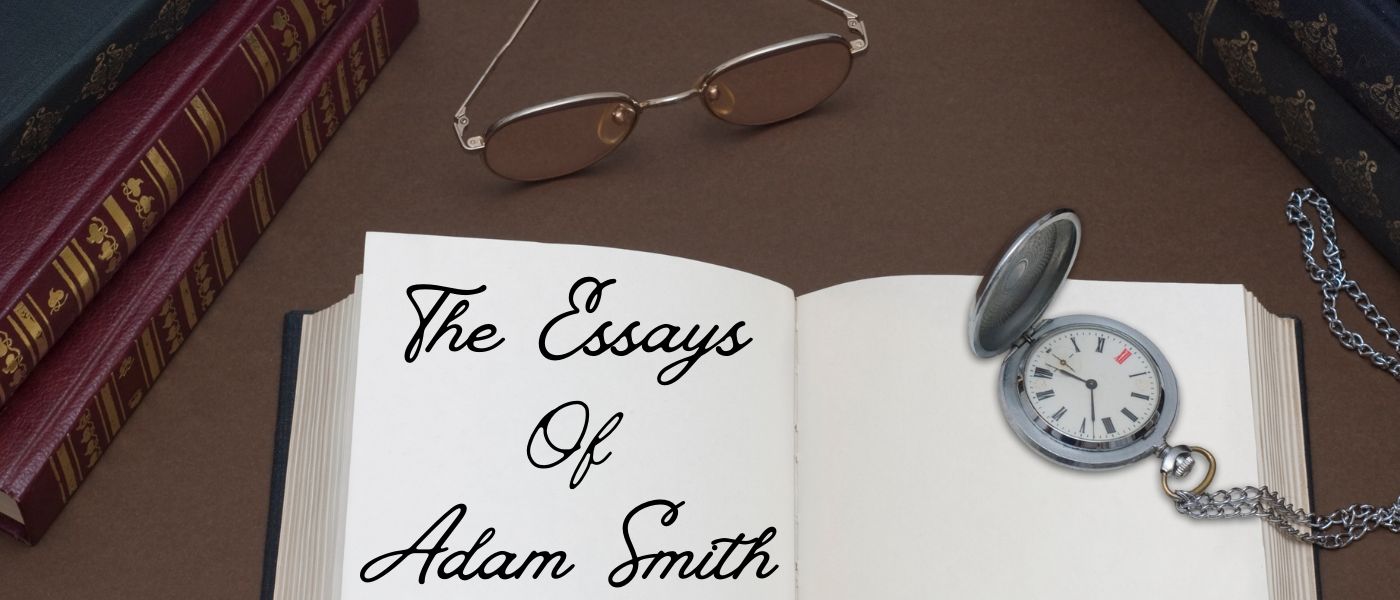 To approve of another man’s opinions is to adopt those opinions, and to adopt them is to approve of them.
To approve of another man’s opinions is to adopt those opinions, and to adopt them is to approve of them.
4. The Essays of Adam Smith: Part I, SEC. I, Chapter V - Of the amiable and respectable Virtues
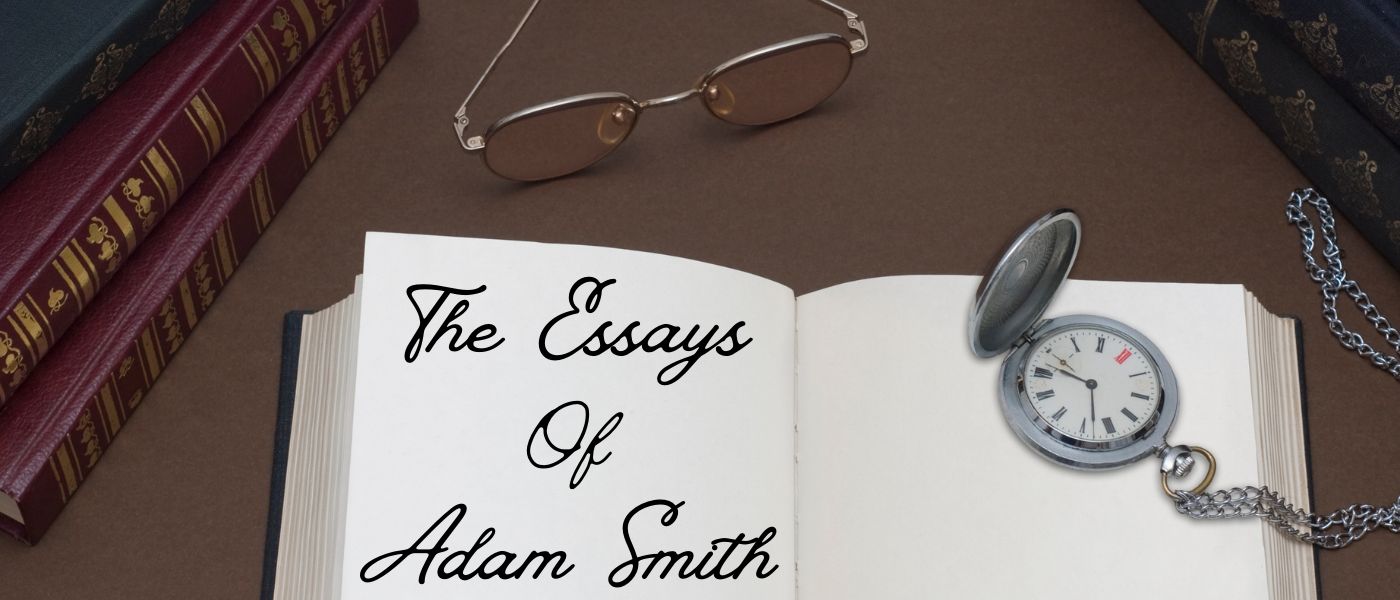 The insolence and brutality of anger, in the same manner, when we indulge its fury without check or restraint, is of all objects the most detestable.
The insolence and brutality of anger, in the same manner, when we indulge its fury without check or restraint, is of all objects the most detestable.
5. The Essays of Adam Smith: Part VII, Section III, Chapter I
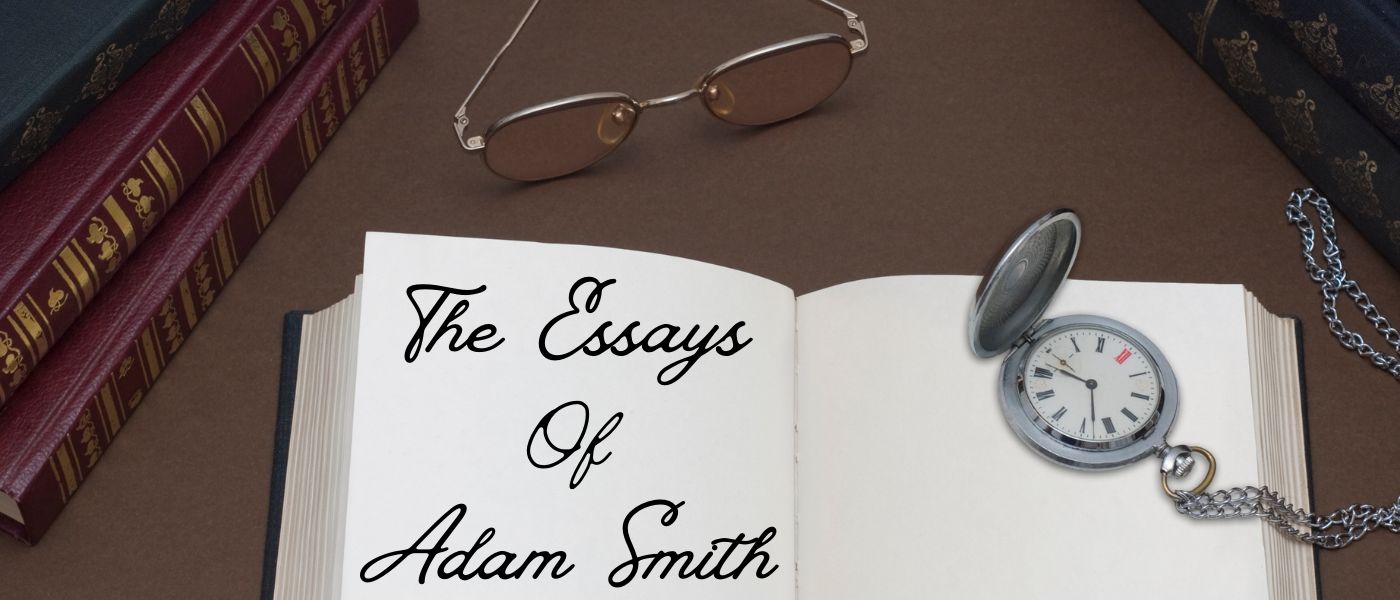 Virtue is the great support, and vice the great disturber of human society.
Virtue is the great support, and vice the great disturber of human society.
6. The Essays of Adam Smith: Part VII: Of Systems of Moral Philosophy, Section I
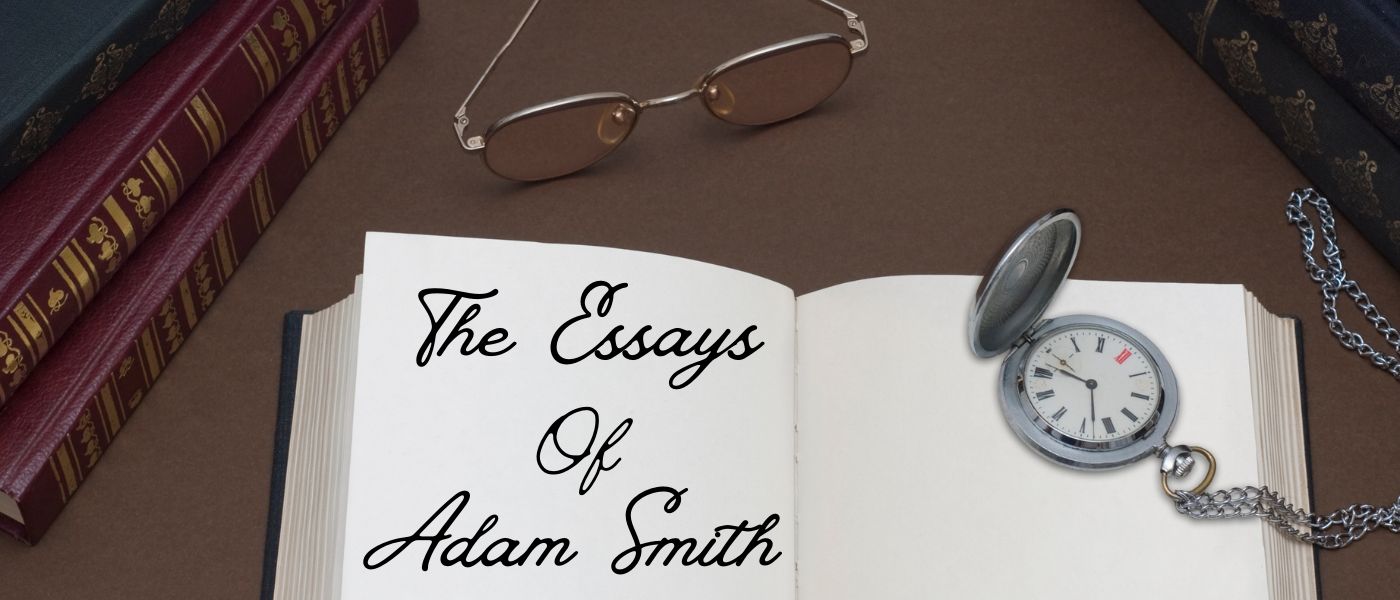 OF THE QUESTIONS WHICH OUGHT TO BE EXAMINED IN A THEORY OF MORAL SENTIMENTS
OF THE QUESTIONS WHICH OUGHT TO BE EXAMINED IN A THEORY OF MORAL SENTIMENTS
7. The Essays of Adam Smith: Part II, SEC. I, Chapter II - Of the proper Objects of Gratitude and Resen
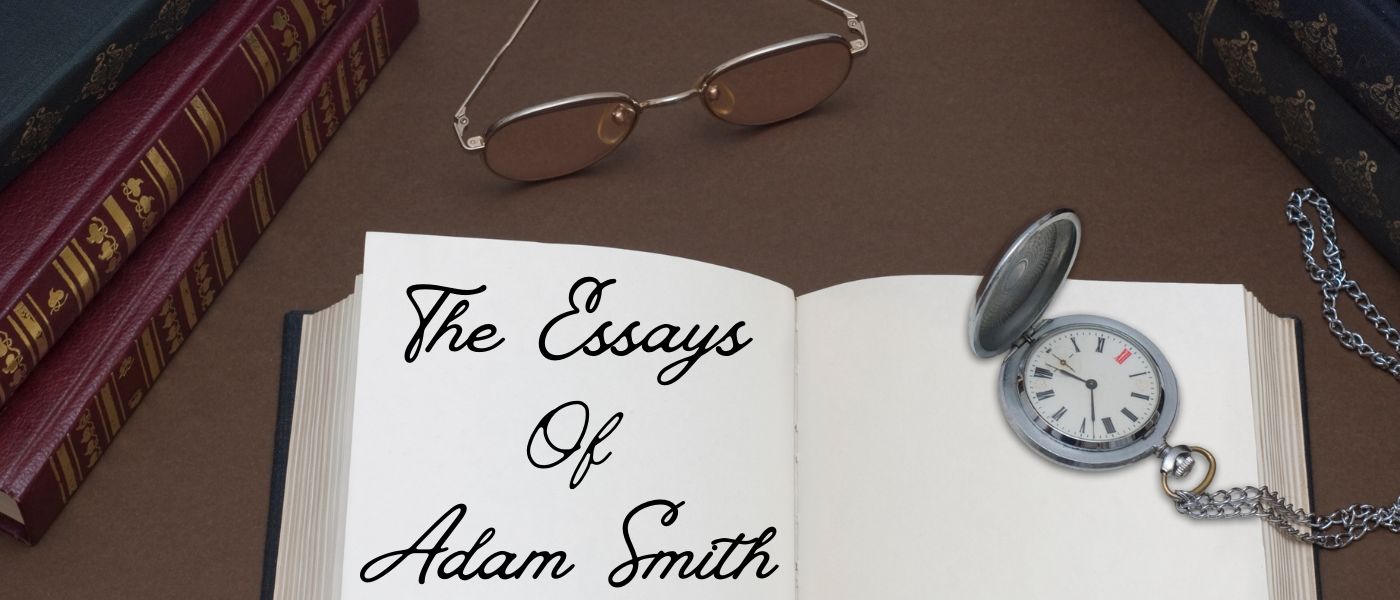 We enter into the love and affection which they conceive for it, and begin to love it too.
We enter into the love and affection which they conceive for it, and begin to love it too.
8. The Essays of Adam Smith: Part VII, Section III, Chapter II
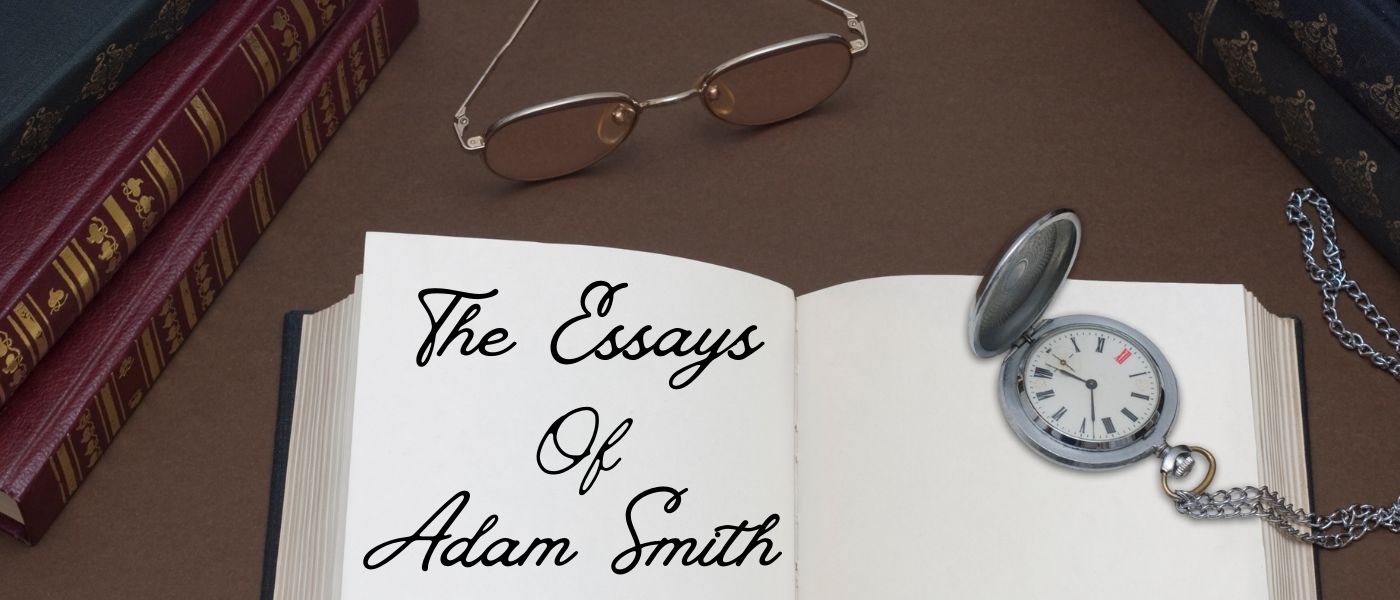 IT is well known to have been the doctrine of Mr. Hobbes, that a state of nature is a state of war; and that antecedent to the institution of civil government.
IT is well known to have been the doctrine of Mr. Hobbes, that a state of nature is a state of war; and that antecedent to the institution of civil government.
9. The Essays of Adam Smith: Of the Affinity between Music, Dancing, and Poetry.
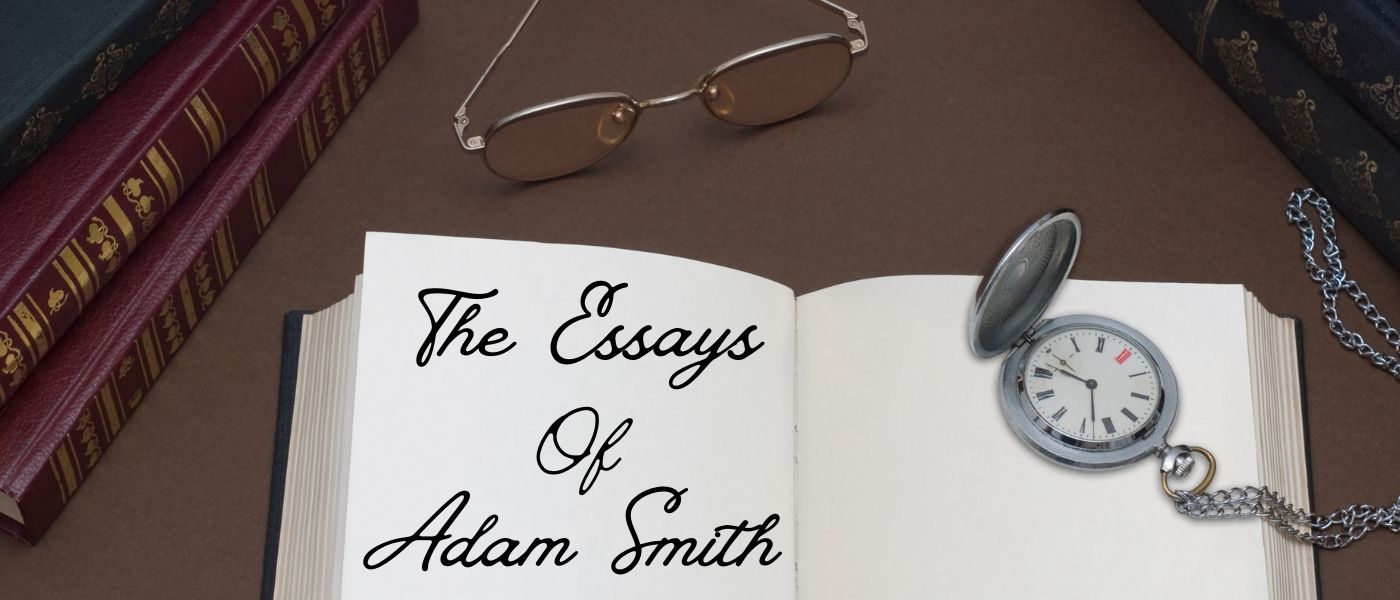 The simple note of such instruments, it is true, is generally a very clear, or what is called a melodious, sound.
The simple note of such instruments, it is true, is generally a very clear, or what is called a melodious, sound.
10. The Essays of Adam Smith: ADAM SMITH ON THE EXTERNAL SENSES - Of the Sense of TOUCHING
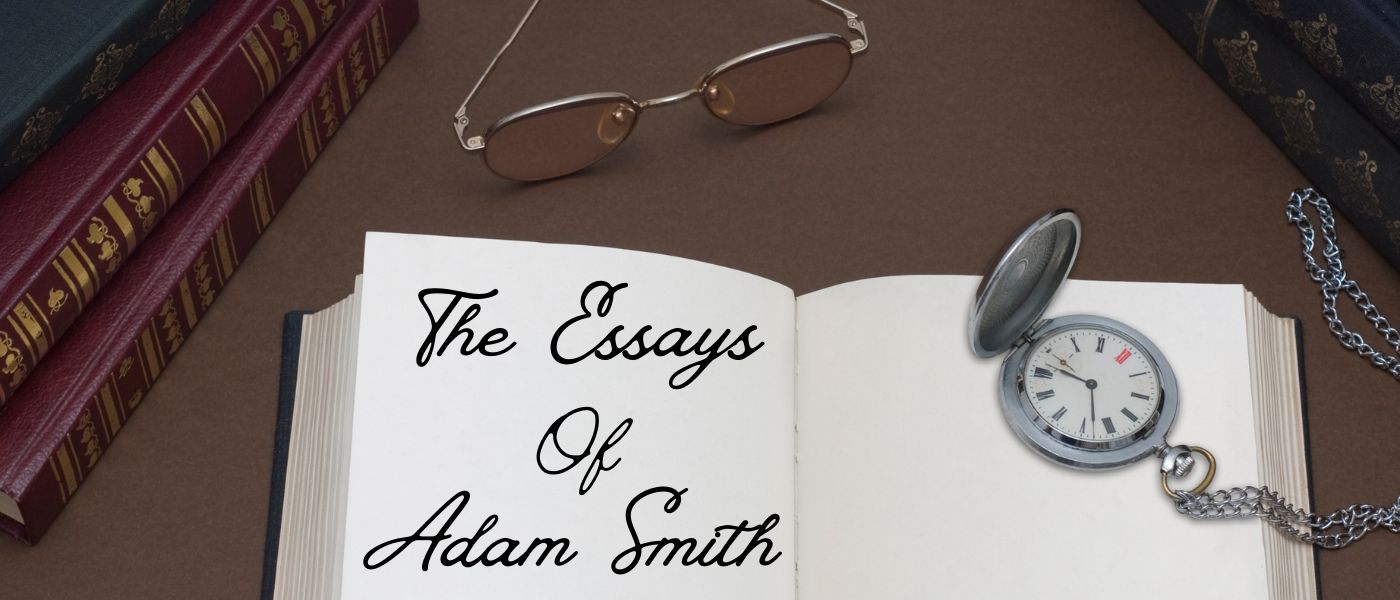 This power or quality of resistance we call Solidity; and the thing which possesses it, the Solid Body or Thing.
This power or quality of resistance we call Solidity; and the thing which possesses it, the Solid Body or Thing.
11. The Essays of Adam Smith: THE HISTORY OF ASTRONOMY. SEC. 1
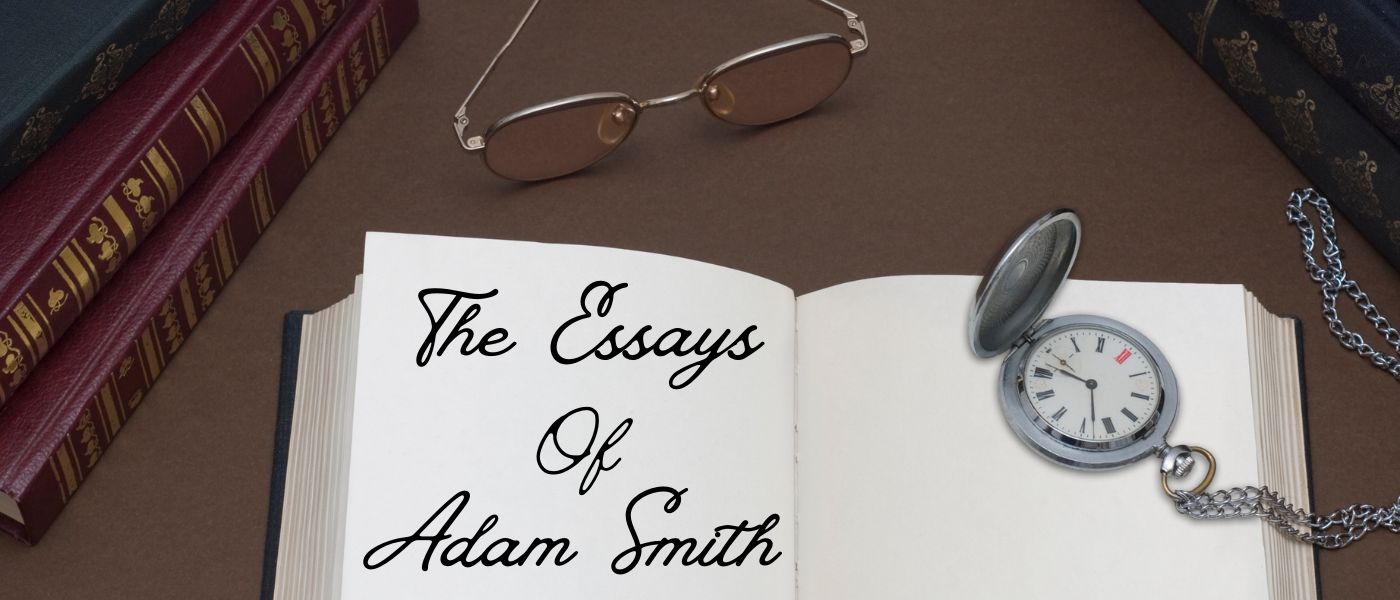 The violent and sudden change produced upon the mind, when an emotion of any kind is brought suddenly upon it, constitutes the whole nature of Surprise.
The violent and sudden change produced upon the mind, when an emotion of any kind is brought suddenly upon it, constitutes the whole nature of Surprise.
12. The Essays of Adam Smith: Part II, SEC. I, Chapter I
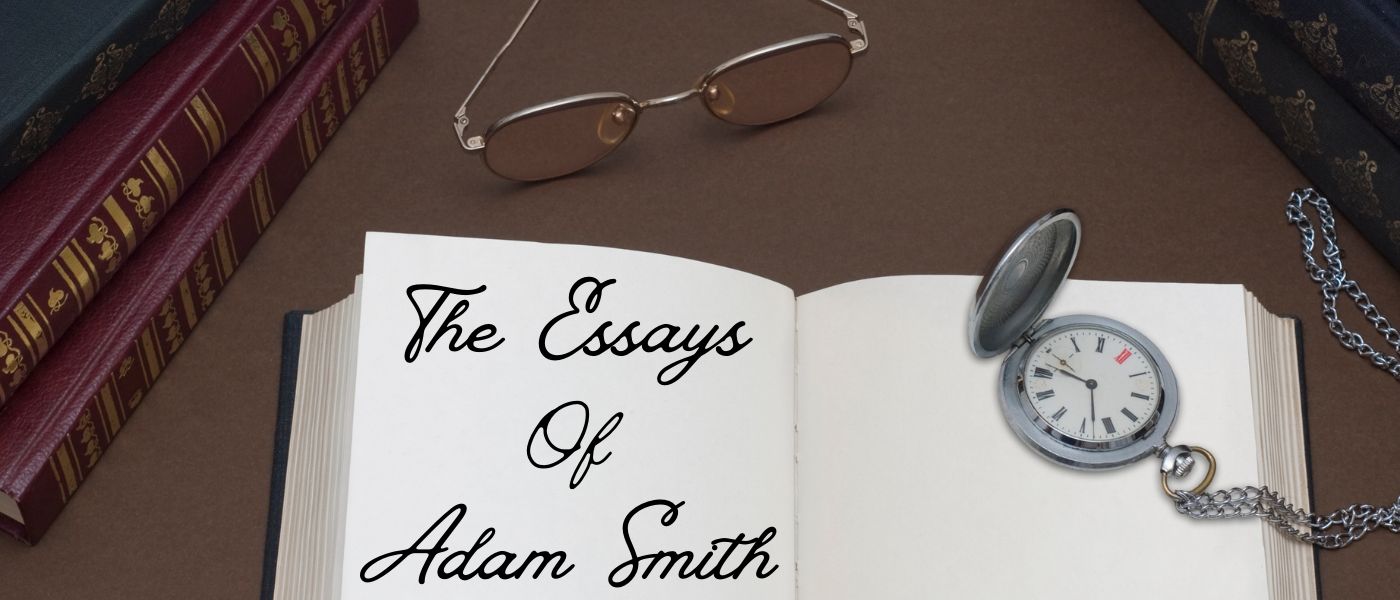 The sentiment which most immediately and directly prompts us to reward is gratitude that which most immediately and directly prompts us to punish is resentment
The sentiment which most immediately and directly prompts us to reward is gratitude that which most immediately and directly prompts us to punish is resentment
13. The Essays of Adam Smith: Part II, SEC. III, Chapter III
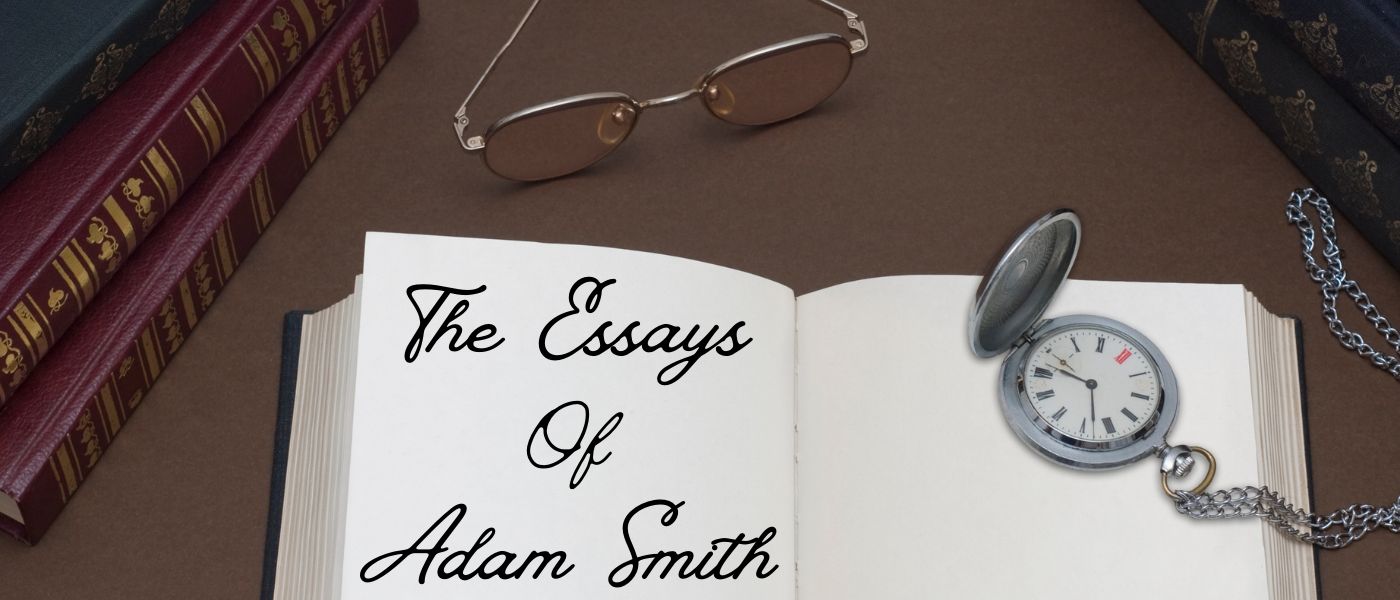 It is even of considerable importance, that the evil which is done without design should be regarded as a misfortune to the doer as well as to the sufferer.
It is even of considerable importance, that the evil which is done without design should be regarded as a misfortune to the doer as well as to the sufferer.
14. The Essays of Adam Smith: Part II, SEC. II, Chapter II.
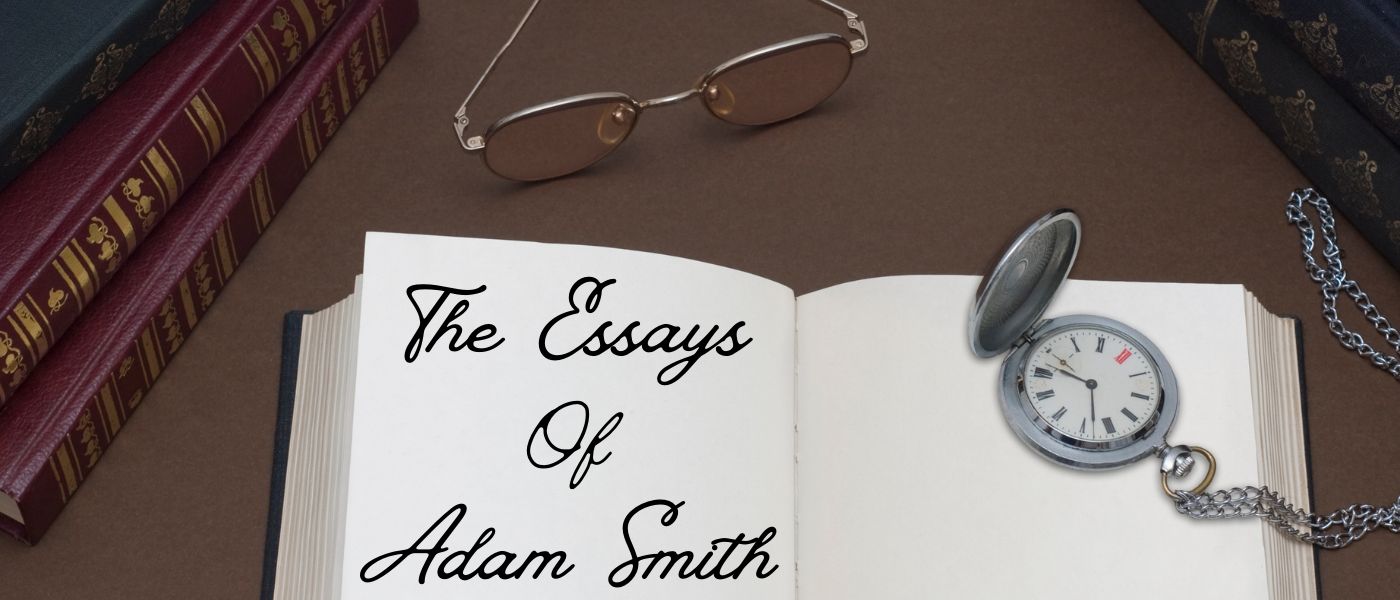 THERE can be no proper motive for hurting our neighbour, there can be no incitement to do evil to another
THERE can be no proper motive for hurting our neighbour, there can be no incitement to do evil to another
15. The Essays of Adam Smith: Part I, SEC. II, Chapter IV - Of the Social Passions.
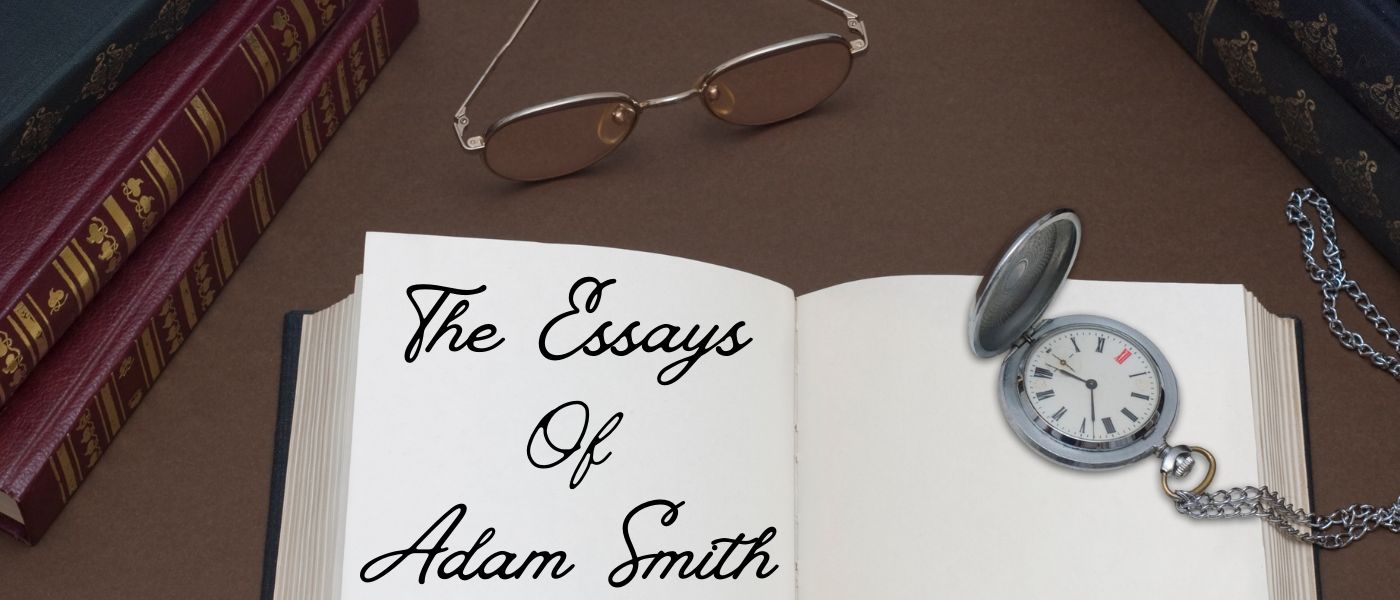 The Essays of Adam Smith, by Adam Smith is part of HackerNoon’s Book The sentiment of love is, in itself, agreeable to the person who feels it.
The Essays of Adam Smith, by Adam Smith is part of HackerNoon’s Book The sentiment of love is, in itself, agreeable to the person who feels it.
16. The Essays of Adam Smith: Part III, Chapter I
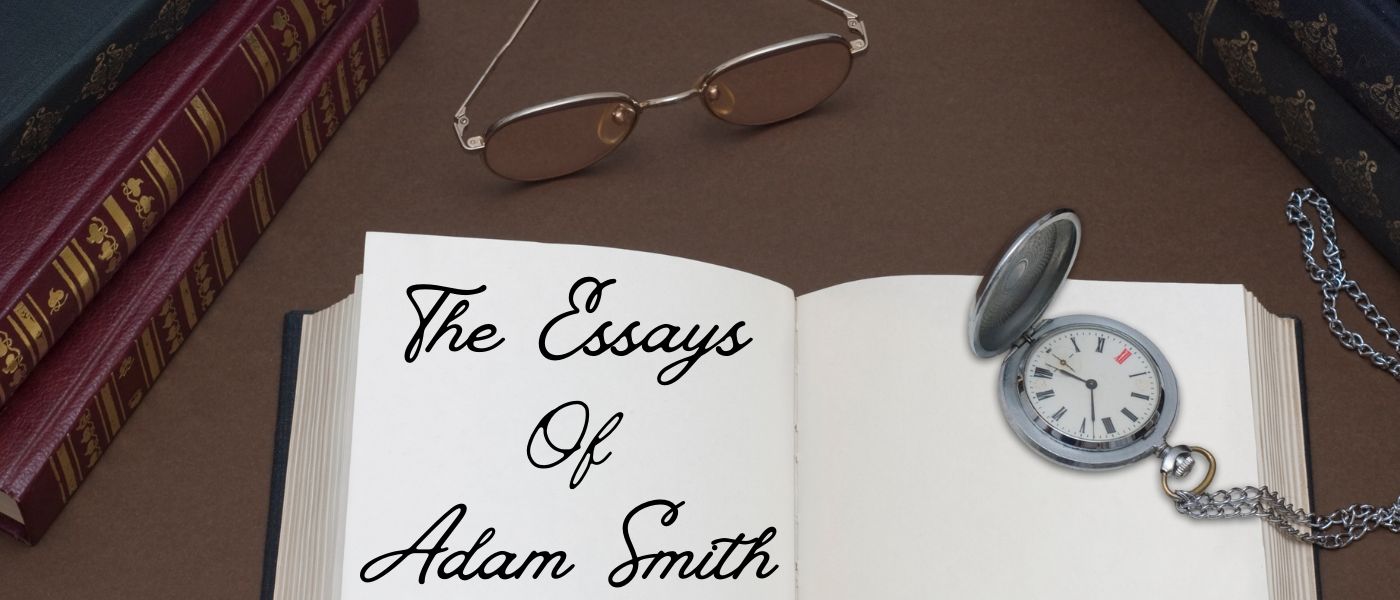 IN the two foregoing parts of this discourse I have chiefly considered the origin and foundation of our judgments concerning the sentiments and conduct of other
IN the two foregoing parts of this discourse I have chiefly considered the origin and foundation of our judgments concerning the sentiments and conduct of other
17. The Essays of Adam Smith: Part I, SEC. I, Chapter II - Of the Pleasure of mutual Sympathy
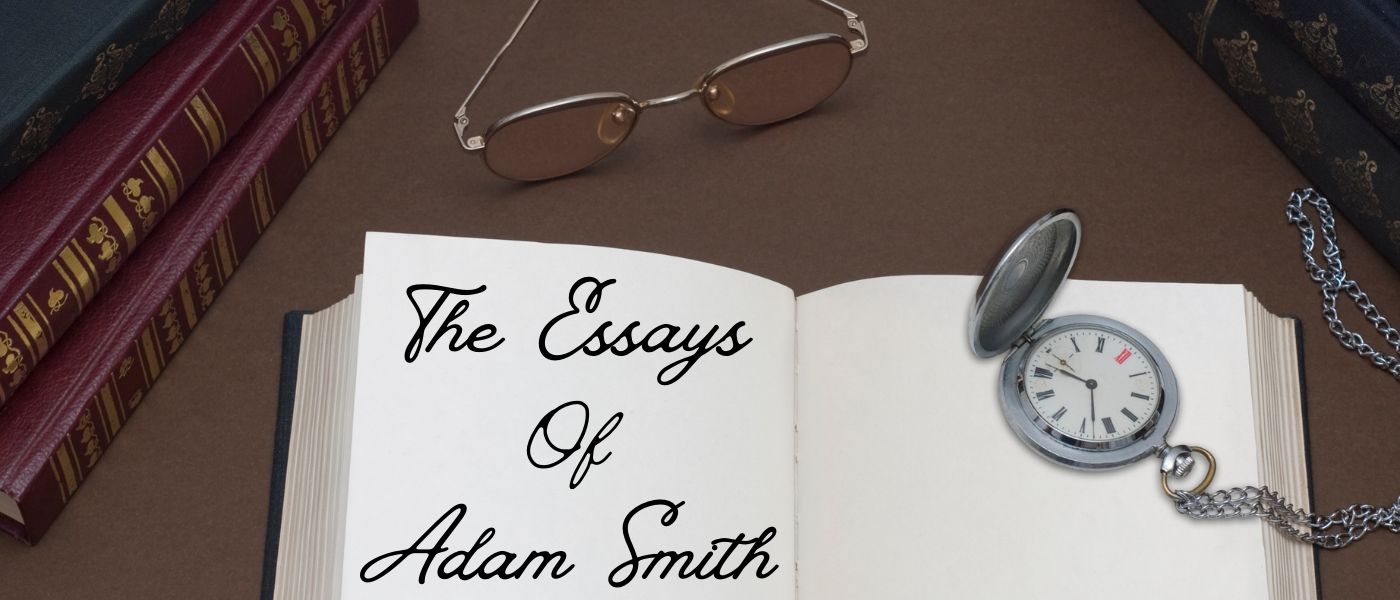 It is to be observed accordingly, that we are still more anxious to communicate to our friends our disagreeable than our agreeable passions.
It is to be observed accordingly, that we are still more anxious to communicate to our friends our disagreeable than our agreeable passions.
18. The Essays of Adam Smith: ADAM SMITH ON THE EXTERNAL SENSES - Of the Sense of TASTING
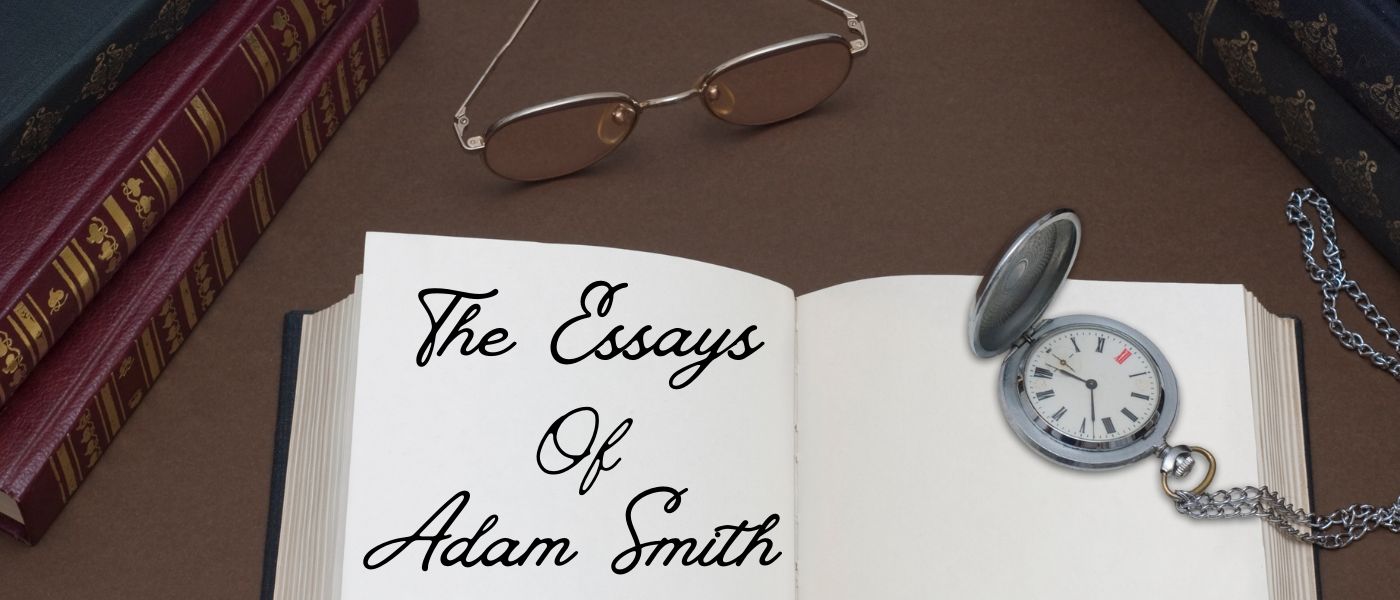 Nobody ever fancies that our food feels its own agreeable or disagreeable taste.
Nobody ever fancies that our food feels its own agreeable or disagreeable taste.
19. The Essays of Adam Smith: Part II, SEC. III, Chapter I - Of the Causes of this Influence of Fortune
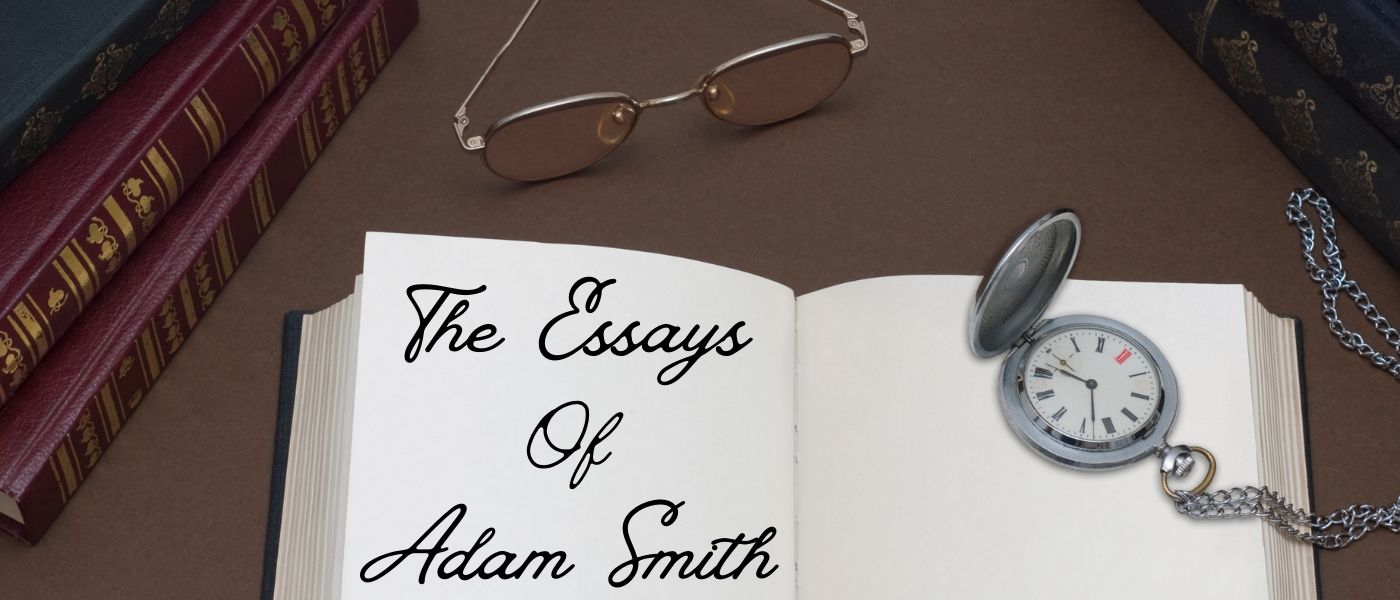 We conceive, in the same manner, a sort of gratitude for those inanimated objects, which have been the causes of great or frequent pleasure to us.
We conceive, in the same manner, a sort of gratitude for those inanimated objects, which have been the causes of great or frequent pleasure to us.
20. The Essays of Adam Smith: Part II, SEC. I, Chapter IV
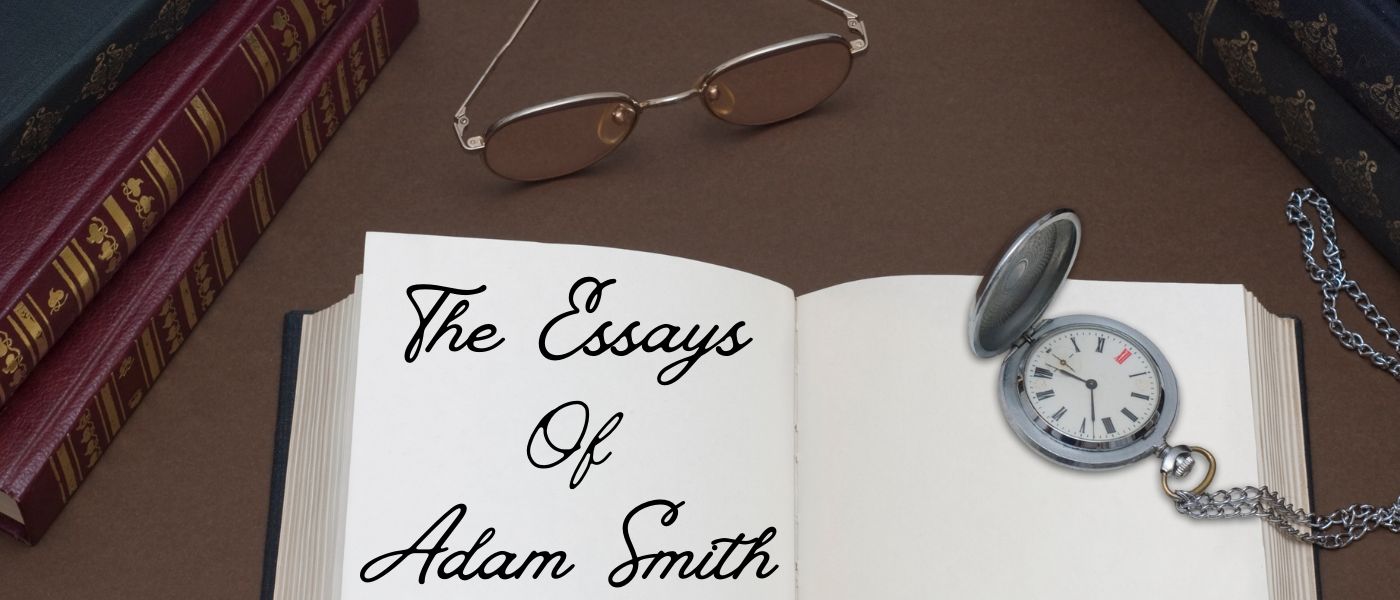 WE do not therefore thoroughly and heartily sympathize with the gratitude of one man towards another.
WE do not therefore thoroughly and heartily sympathize with the gratitude of one man towards another.
21. The Essays of Adam Smith: ADAM SMITH ON THE EXTERNAL SENSES - Of the Sense of SMELLING.
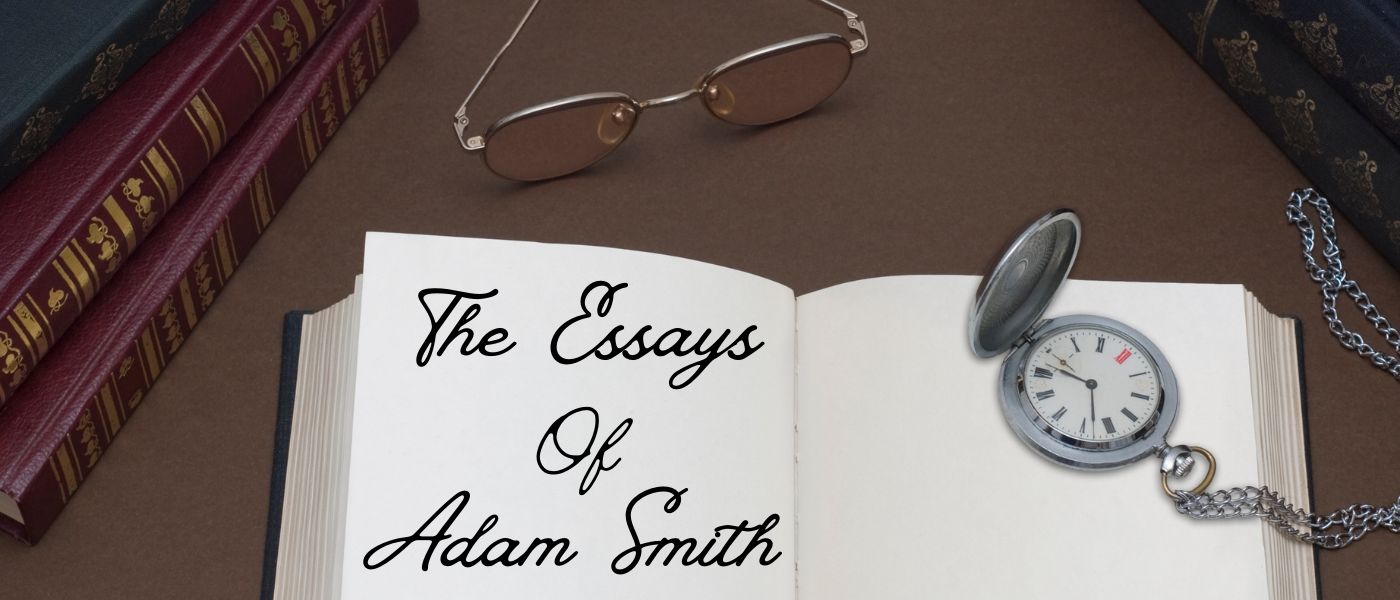 EVERY smell or odour is naturally felt as in the nostrils;
EVERY smell or odour is naturally felt as in the nostrils;
22. The Essays of Adam Smith: Part I, SEC. II, Chapter I
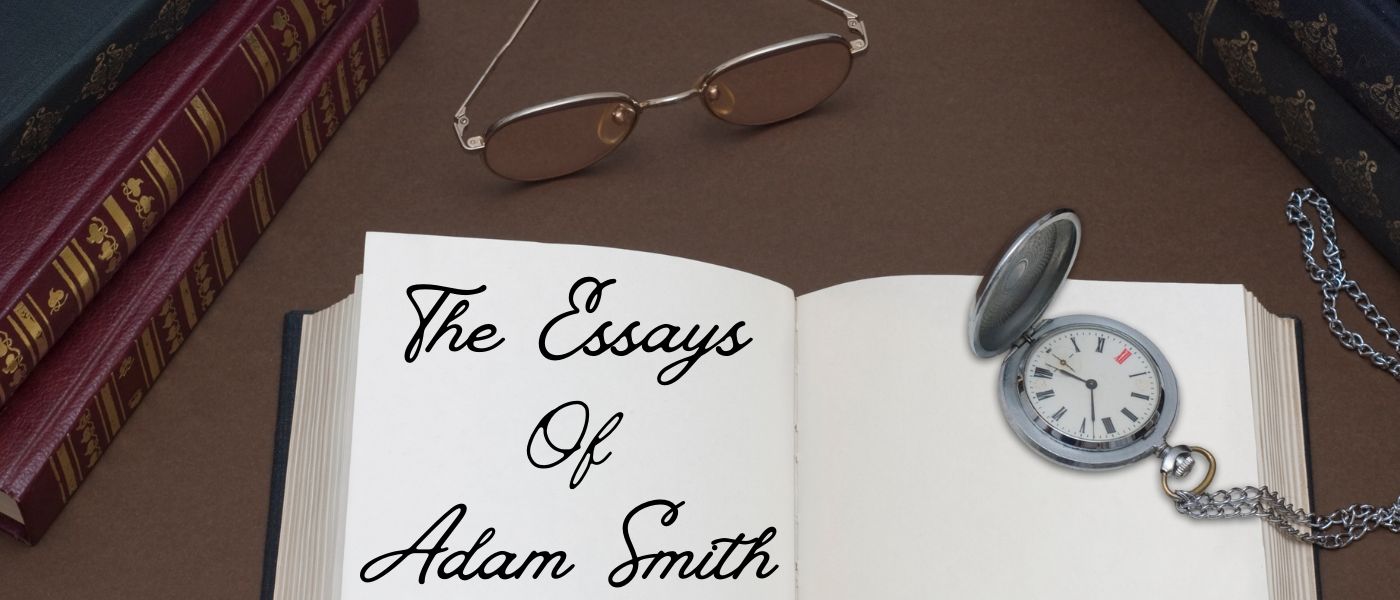 It is the same case with the passion by which Nature unites the two sexes.
It is the same case with the passion by which Nature unites the two sexes.
23. The Essays of Adam Smith: Part II, SEC. III.
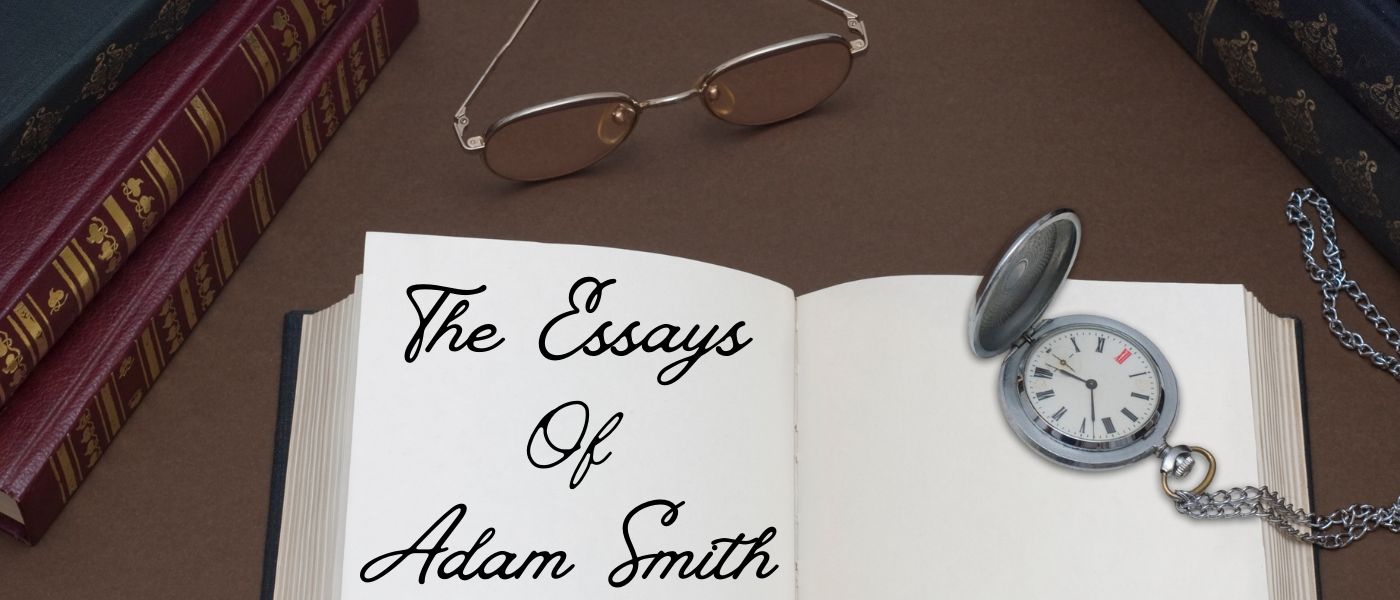 These three different things constitute the whole nature and circumstances of the action, and must be the foundation of whatever quality can belong to it.
These three different things constitute the whole nature and circumstances of the action, and must be the foundation of whatever quality can belong to it.
24. The Essays of Adam Smith: Part I, SEC. II, Chapter III - Of the unsocial Passions
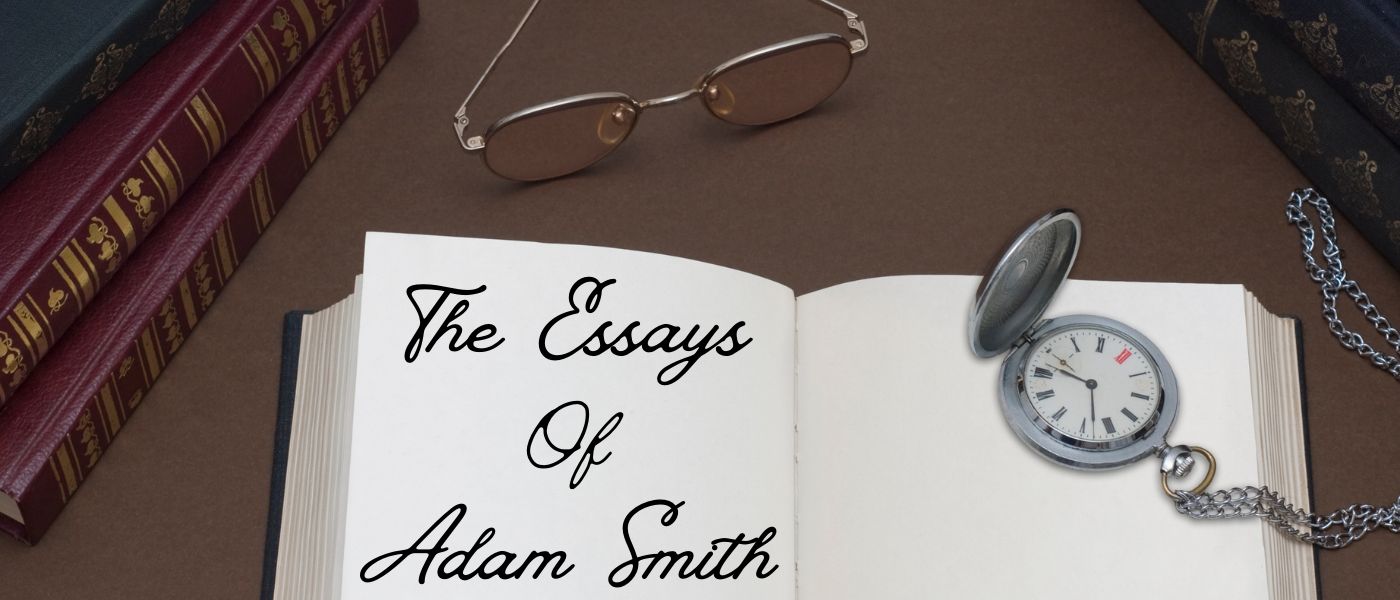 The villain, in a tragedy or romance, is as much the object of our indignation, as the hero is that of our sympathy and affection.
The villain, in a tragedy or romance, is as much the object of our indignation, as the hero is that of our sympathy and affection.
25. The Essays of Adam Smith: Part I, SEC. III, Chapter I
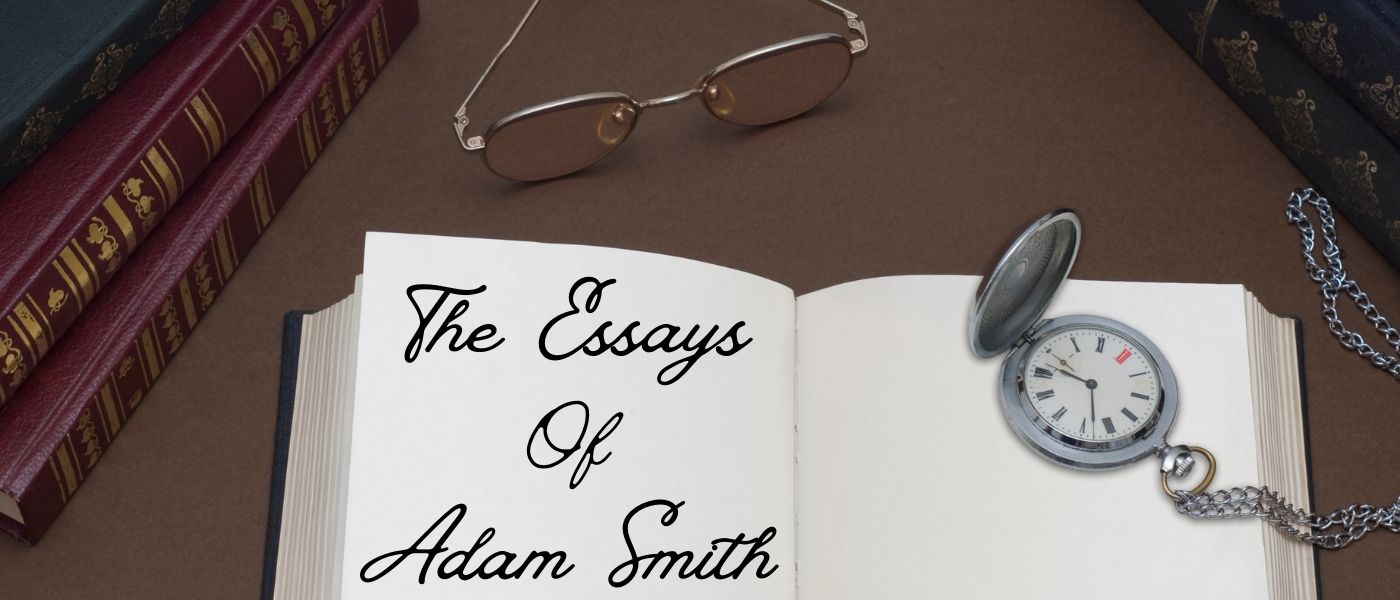 OUR sympathy with sorrow, though not more real, has been more taken notice of than our sympathy with joy.
OUR sympathy with sorrow, though not more real, has been more taken notice of than our sympathy with joy.
26. The Essays of Adam Smith: Part I, SEC. II, Chapter V - Of the Selfish Passions.
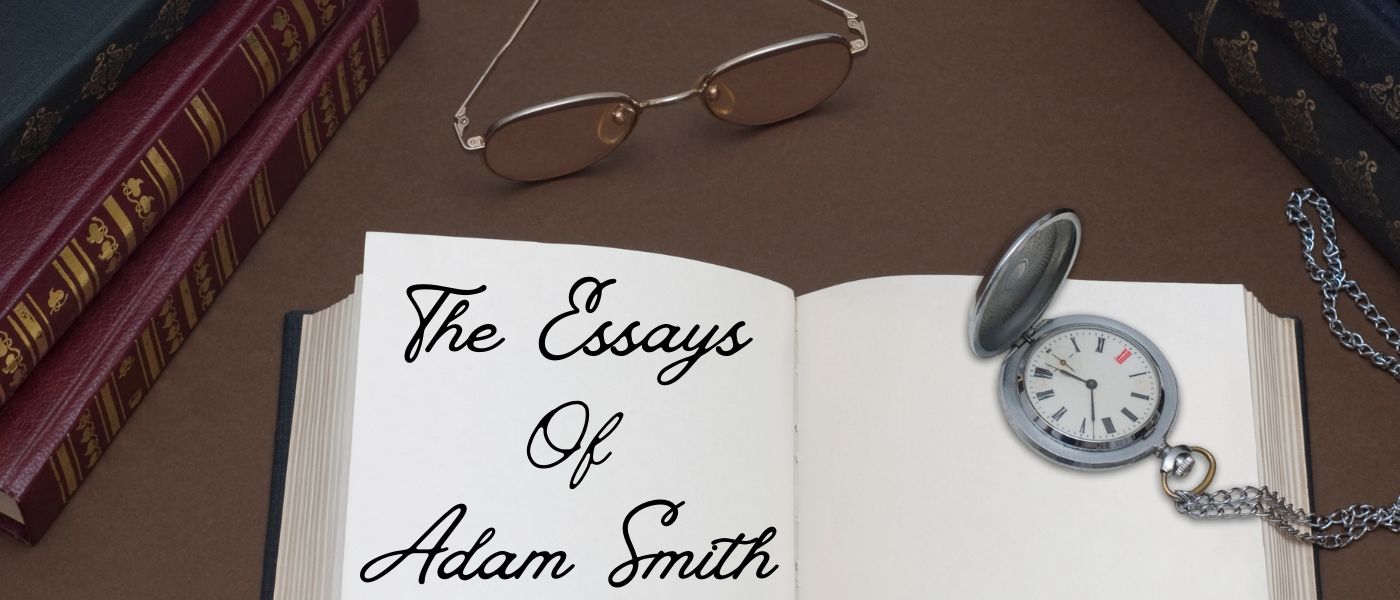 Mankind, however, more readily sympathize with those smaller joys which flow from less important causes.
Mankind, however, more readily sympathize with those smaller joys which flow from less important causes.
27. The Essays of Adam Smith: Part IV, Chapter II
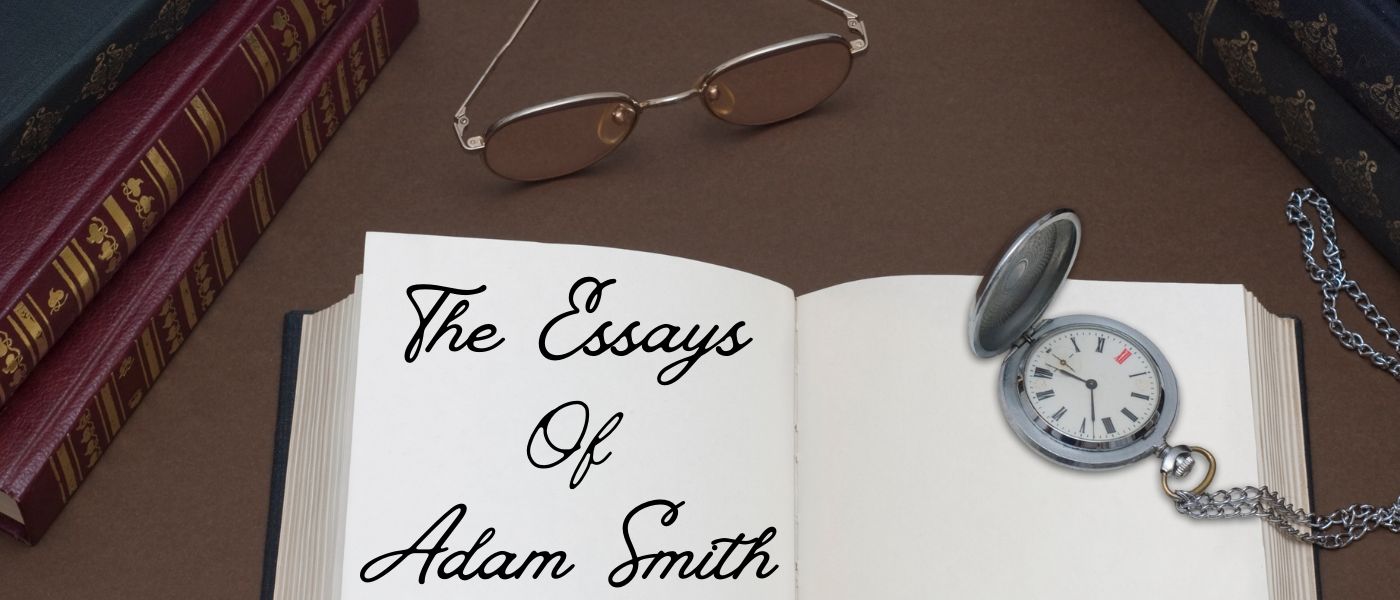 Of the Beauty which the Appearance of Utility bestows upon the Characters and the Actions of Men
Of the Beauty which the Appearance of Utility bestows upon the Characters and the Actions of Men
28. The Essays of Adam Smith: THE IMITATIVE ARTS - Part III
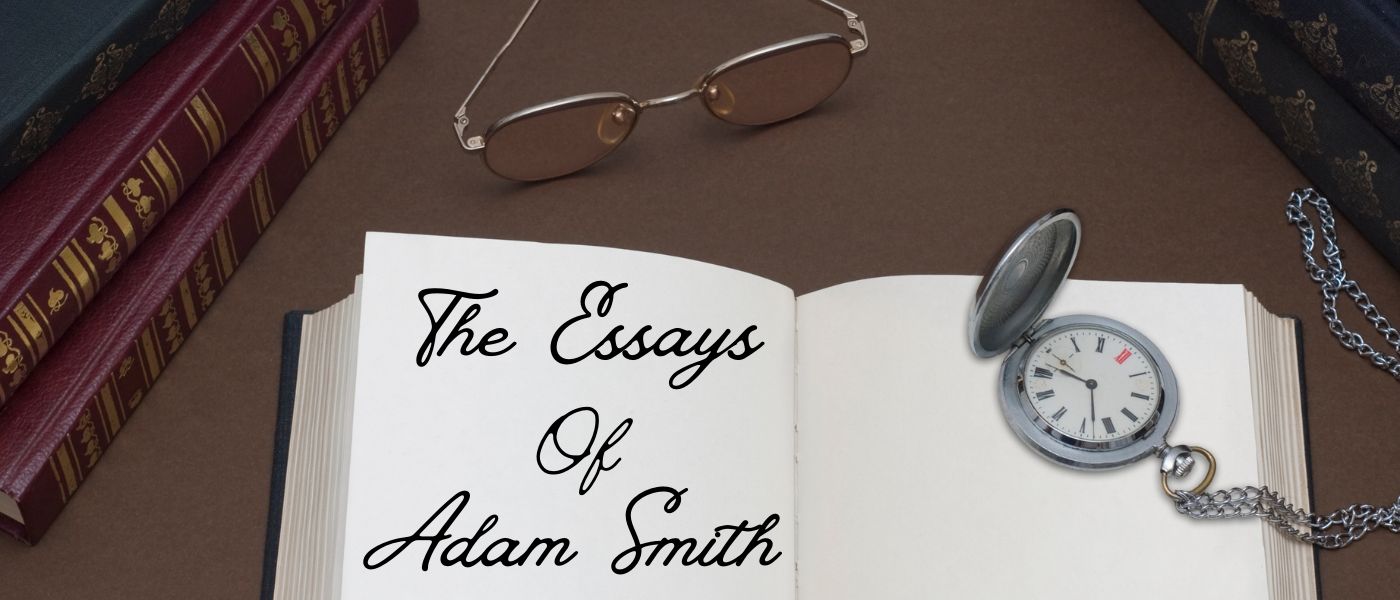 The imitative powers of Dancing are much superior to those of instrumental Music, and are at least equal, perhaps superior, to those of any other art.
The imitative powers of Dancing are much superior to those of instrumental Music, and are at least equal, perhaps superior, to those of any other art.
29. The Essays of Adam Smith - Table of Links
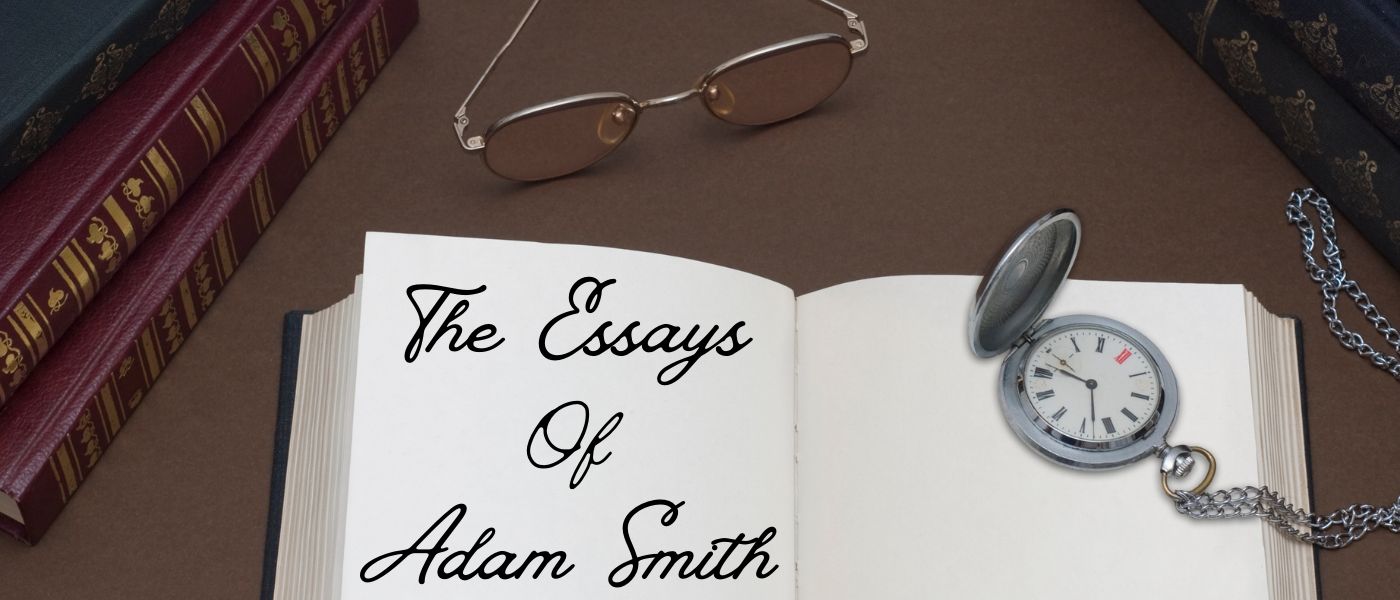 The Essays of Adam Smith, by Adam Smith is part of HackerNoon’s Books series. Read this book online for free on HackerNoon!
The Essays of Adam Smith, by Adam Smith is part of HackerNoon’s Books series. Read this book online for free on HackerNoon!
30. The Essays of Adam Smith: Part I, SEC. I, Chapter IV - The same Subject continued.
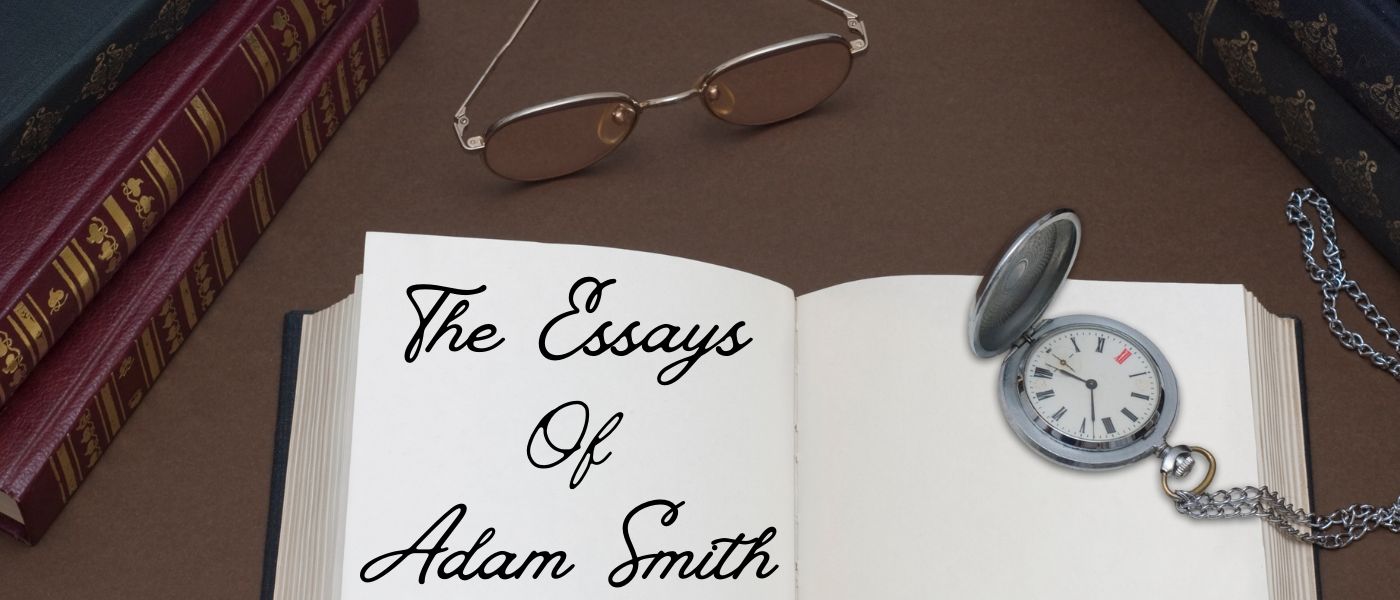 WE may judge of the propriety or impropriety of the sentiments of another person by their correspondence or disagreement with our own.
WE may judge of the propriety or impropriety of the sentiments of another person by their correspondence or disagreement with our own.
31. The Essays of Adam Smith: Part VI, Section II
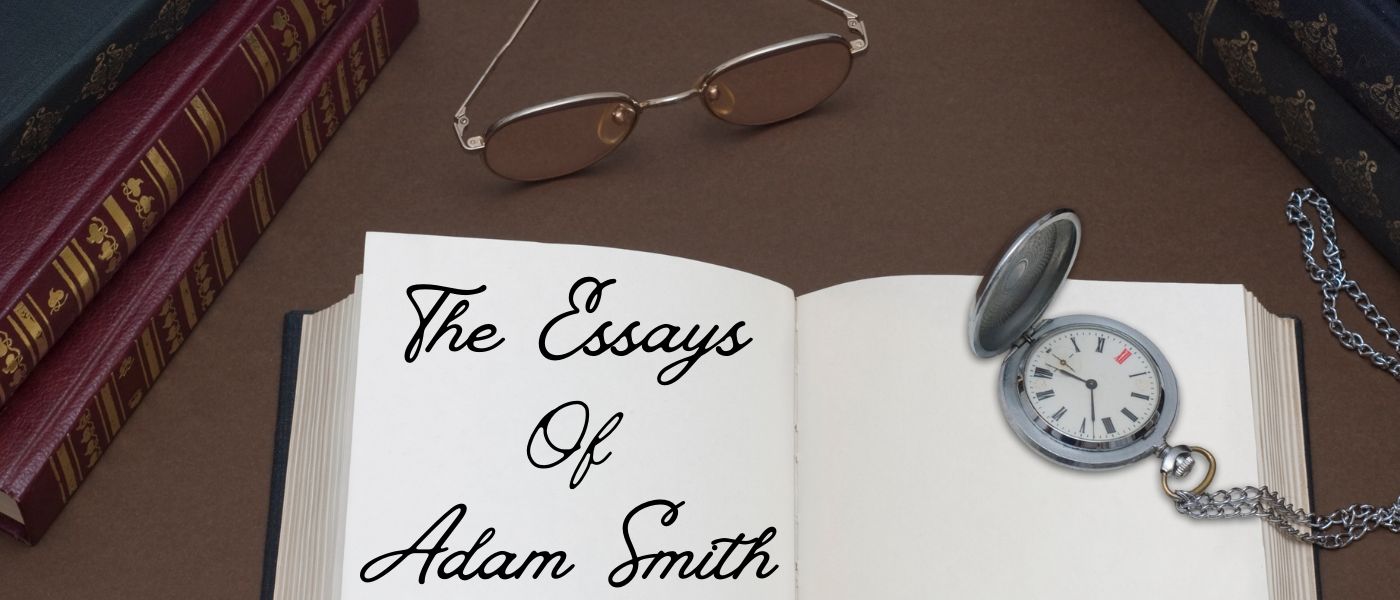 The character of every individual, so far as it can affect the happiness of other people, must do so by its disposition either to hurt or to benefit them.
The character of every individual, so far as it can affect the happiness of other people, must do so by its disposition either to hurt or to benefit them.
32. The Essays of Adam Smith: Part VI: CONCLUSION OF THE SIXTH PART
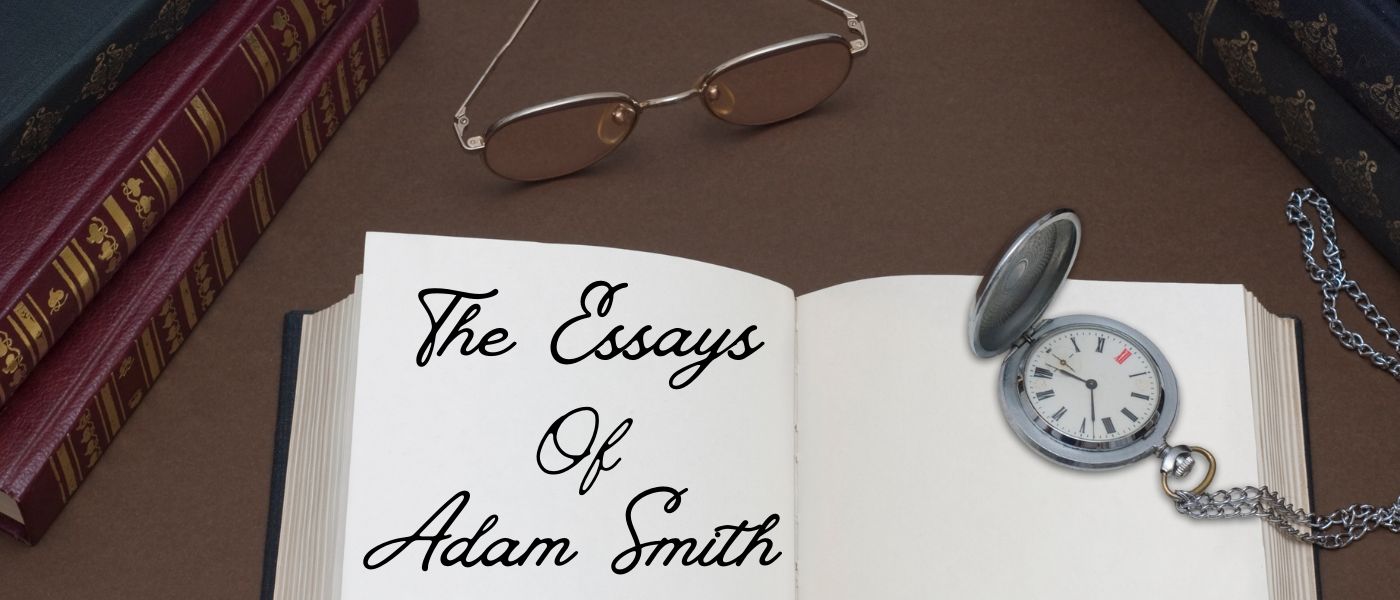 The effects are too often but too little regarded.
The effects are too often but too little regarded.
33. The Essays of Adam Smith: Part VII, Section II, Chapter III
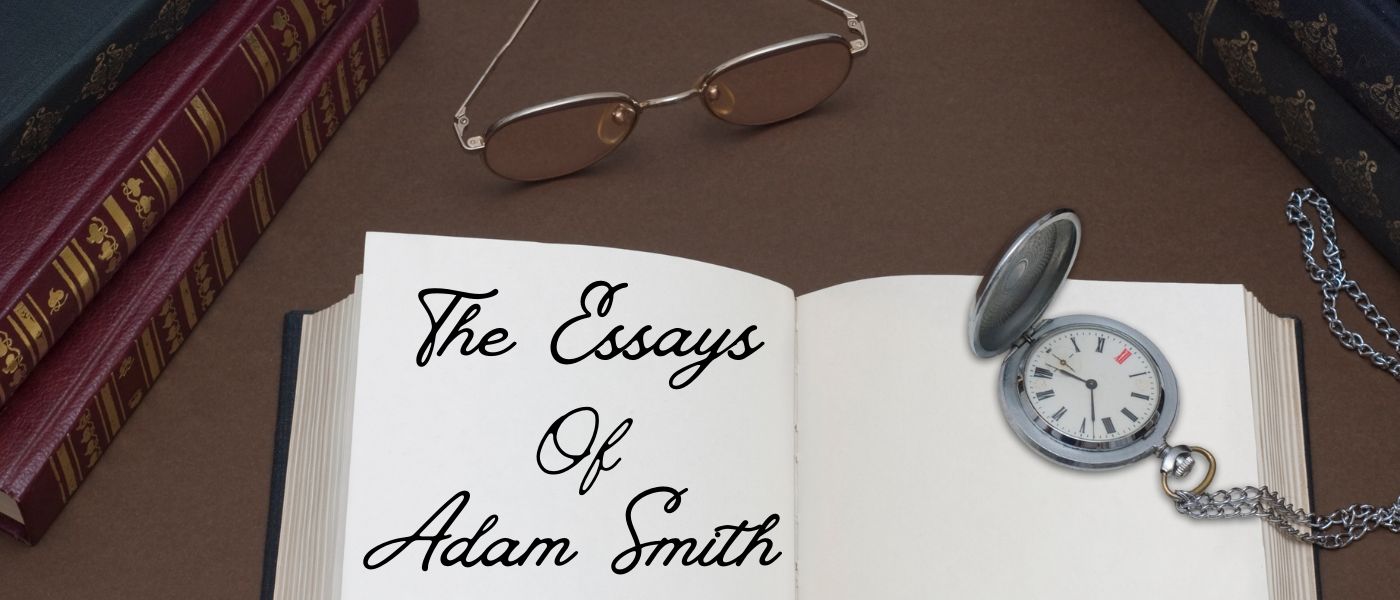 In the divine nature, according to these authors, benevolence or love was the sole principle of action, and directed the exertion of all the other attributes.
In the divine nature, according to these authors, benevolence or love was the sole principle of action, and directed the exertion of all the other attributes.
34. The Essays of Adam Smith: Part II, SEC. I, Chapter V
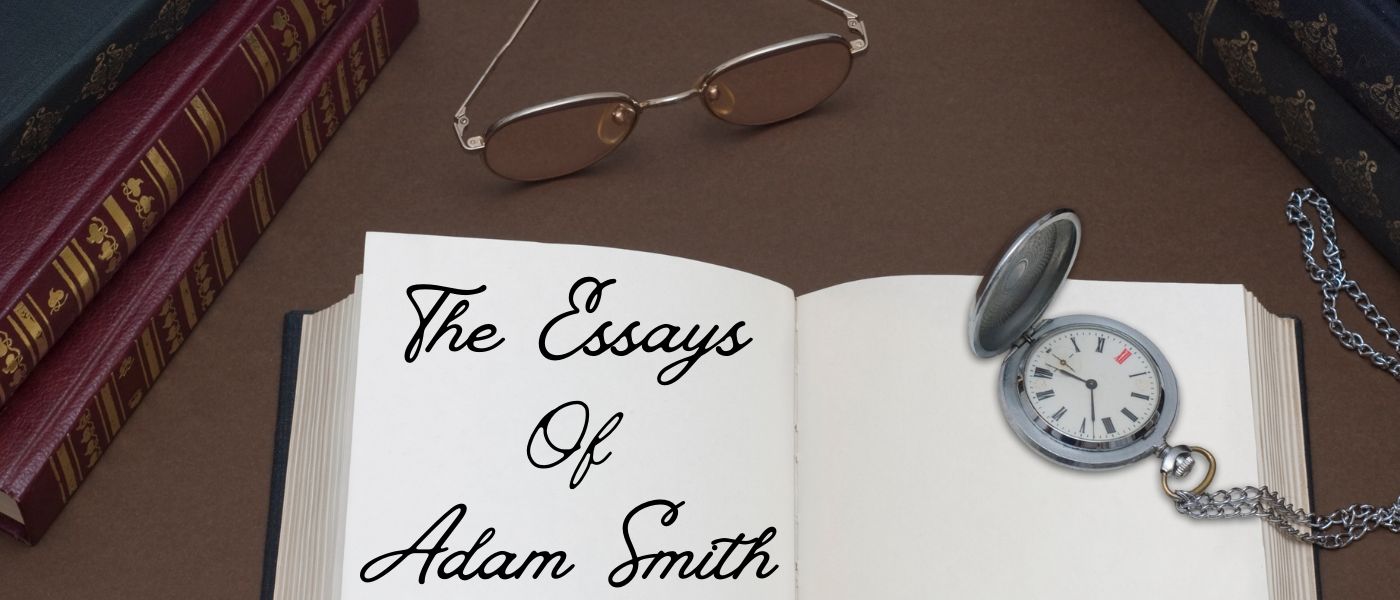 As we cannot indeed enter thoroughly into the gratitude of the person who receives the benefit, unless we beforehand approve of the motives of the benefactor.
As we cannot indeed enter thoroughly into the gratitude of the person who receives the benefit, unless we beforehand approve of the motives of the benefactor.
35. The Essays of Adam Smith: Part VII, Section III, Chapter III.
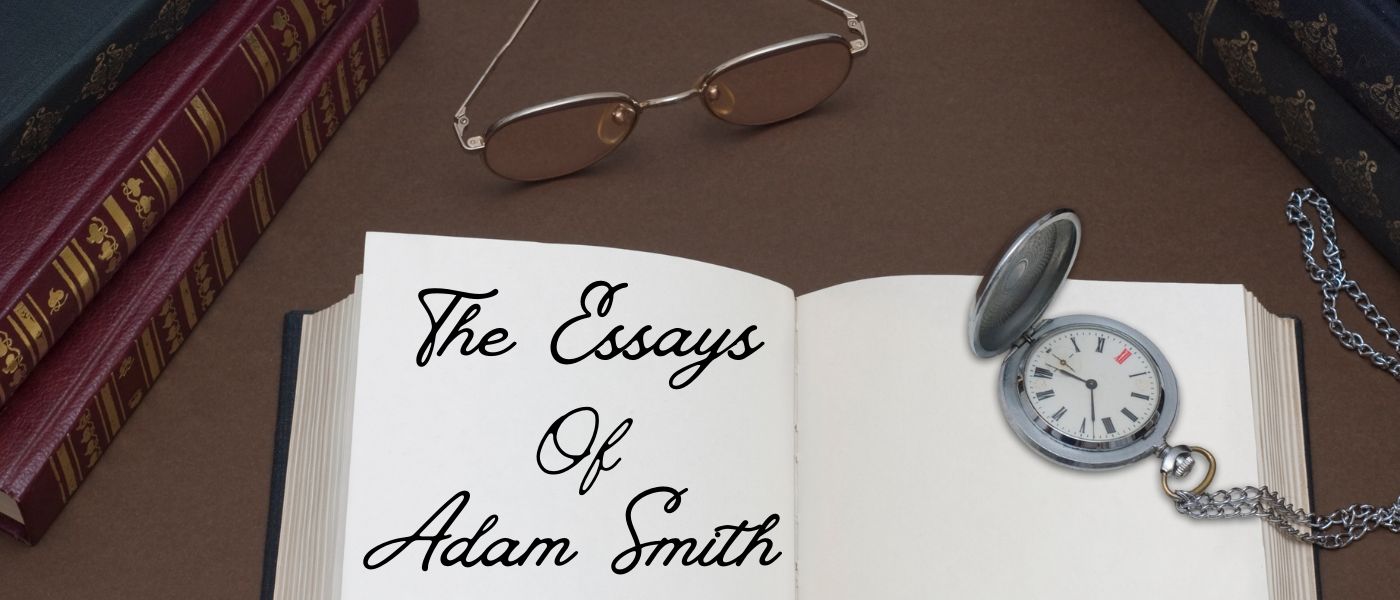 THOSE systems which make sentiment the principle of approbation may be divided into two different classes.
THOSE systems which make sentiment the principle of approbation may be divided into two different classes.
36. The Essays of Adam Smith: Part V, Chapter I
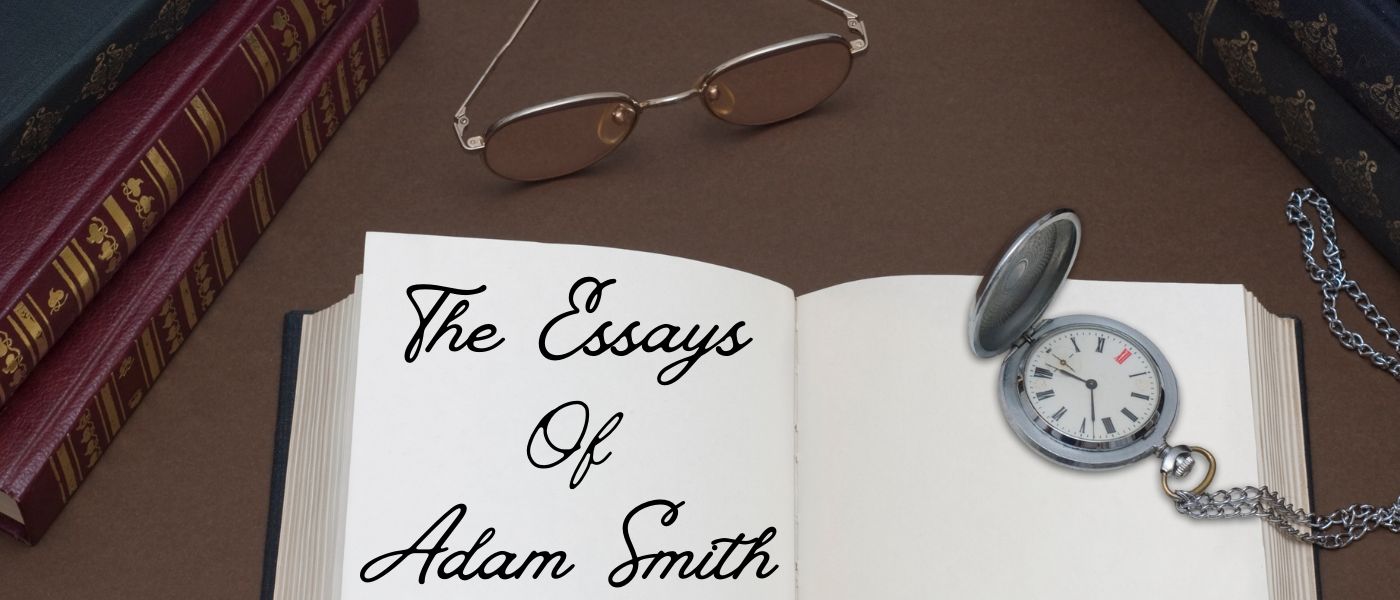 When two objects have frequently been seen together, the imagination acquires a habit of passing easily from the one to the other.
When two objects have frequently been seen together, the imagination acquires a habit of passing easily from the one to the other.
37. THE PRINCIPLES WHICH LEAD AND DIRECT PHILOSOPHICAL ENQUIRIES, AS ILLUSTRATED BY THE HISTORY OF ASTRO
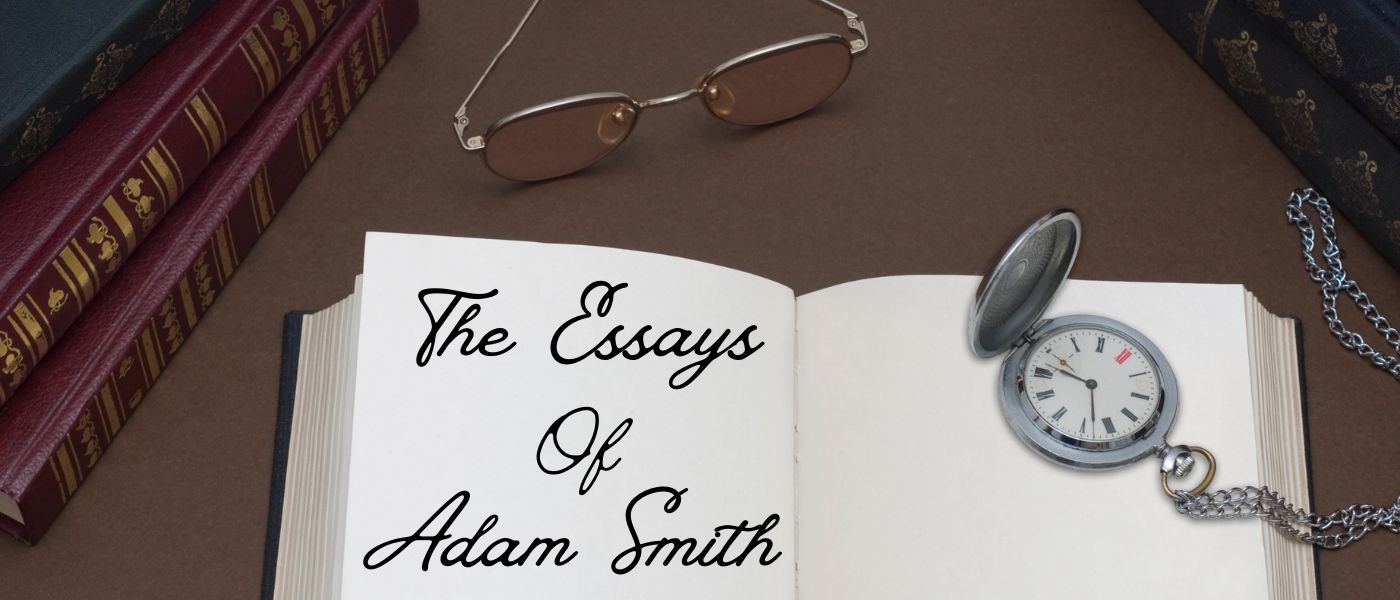 The fool of nature stood with stupid eyes,
And gaping mouth, that testified surprise.
The fool of nature stood with stupid eyes,
And gaping mouth, that testified surprise.
38. The Origin of Philosophy
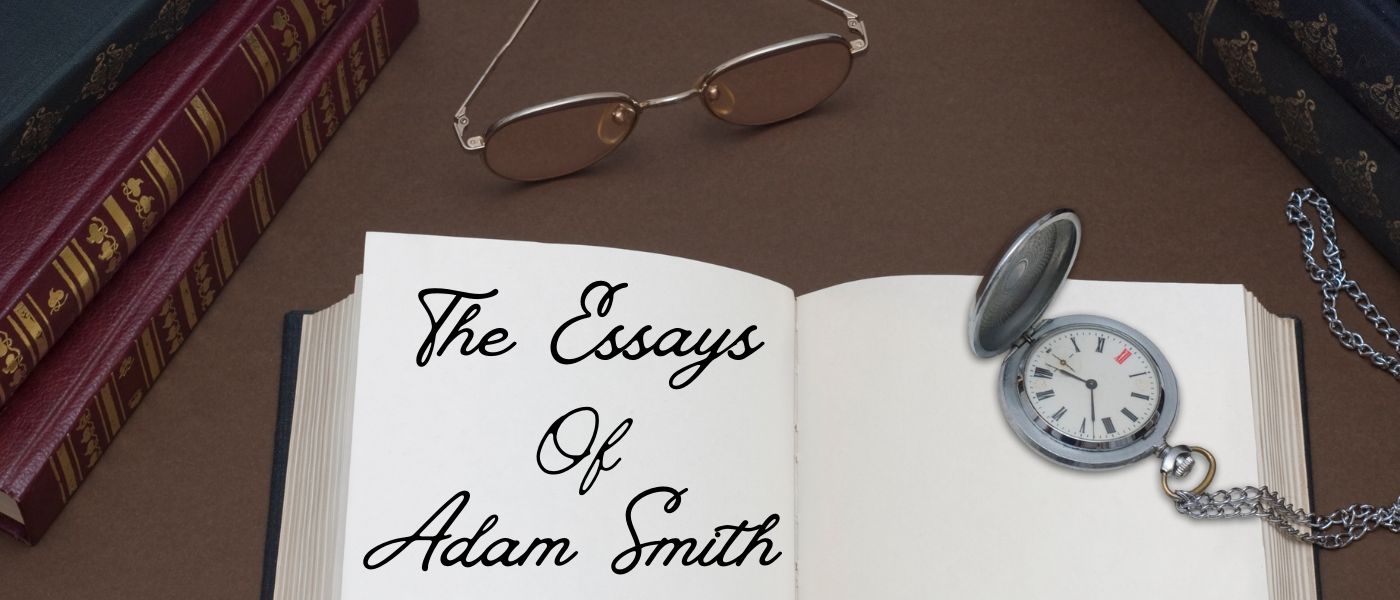 Comets, eclipses, thunder, lightning, and other meteors, by their greatness, naturally overawe him, and he views them with a reverence that approaches to fear.
Comets, eclipses, thunder, lightning, and other meteors, by their greatness, naturally overawe him, and he views them with a reverence that approaches to fear.
39. The Essays of Adam Smith: Part VII, Section II, Chapter IV - Of Licentious Systems.
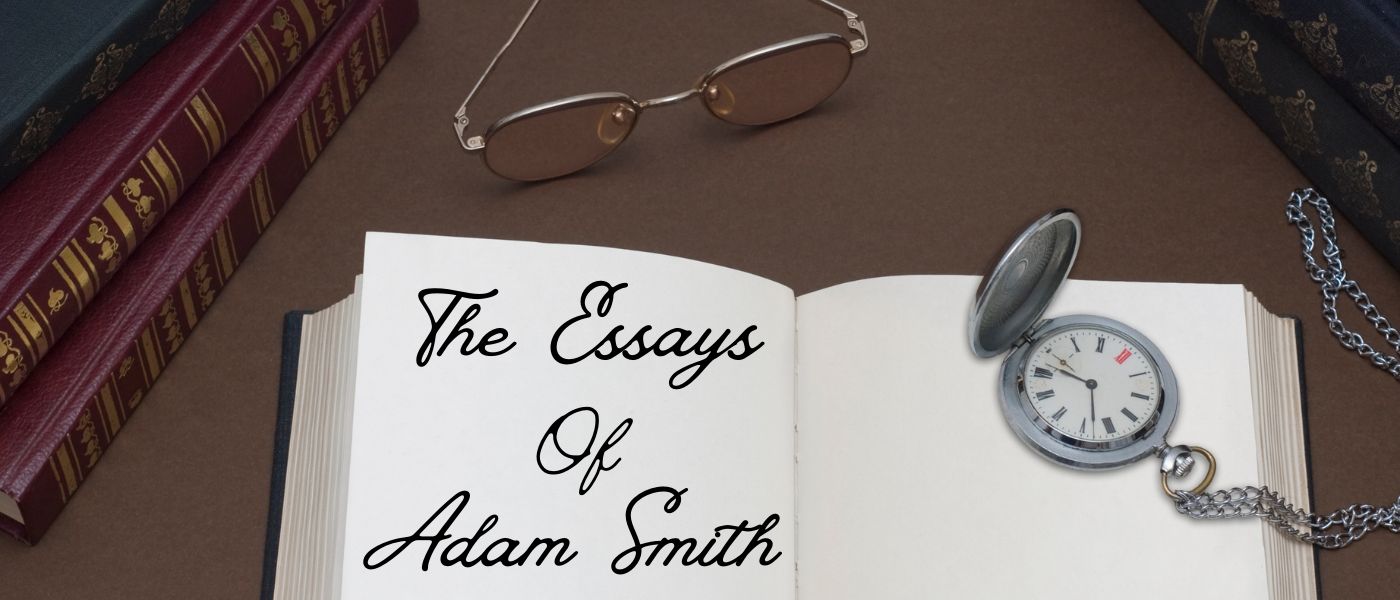 In the main, too, all of them contribute to encourage the praiseworthy, and to discourage the blameable disposition.
In the main, too, all of them contribute to encourage the praiseworthy, and to discourage the blameable disposition.
40. The Essays of Adam Smith: Part VII, Section II, Chapter II
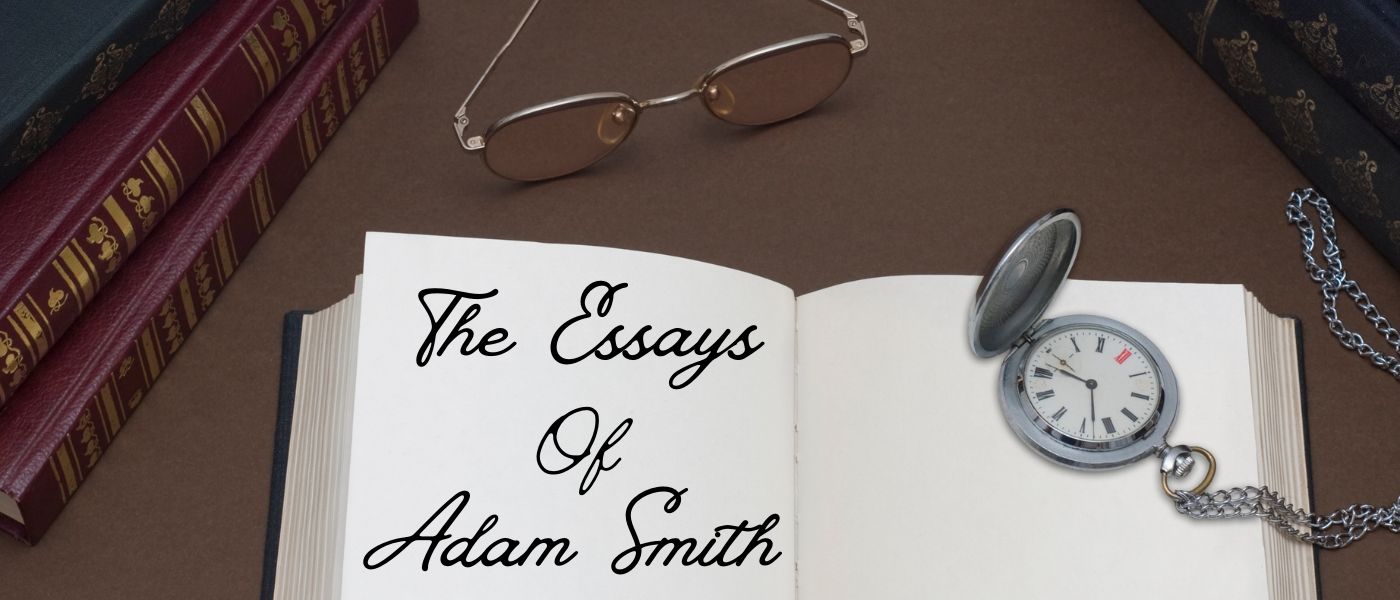 Pleasure and pain are the great objects of desire and aversion: but these are distinguished, not by reason, but by immediate sense and feeling.
Pleasure and pain are the great objects of desire and aversion: but these are distinguished, not by reason, but by immediate sense and feeling.
41. The Essays of Adam Smith: Part I, SEC. III, Chapter III.
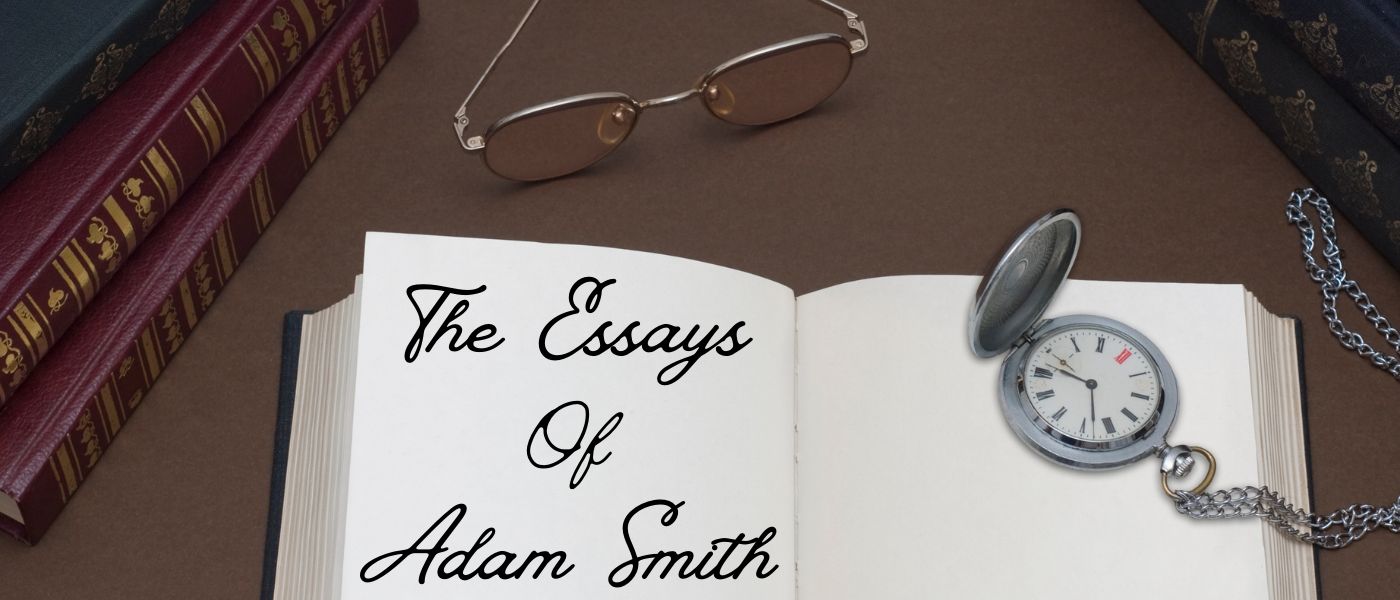 In equal degrees of merit there is scarce any man who does not respect more the rich and the great, than the poor and the humble.
In equal degrees of merit there is scarce any man who does not respect more the rich and the great, than the poor and the humble.
42. The Essays of Adam Smith: Part I, SEC. II, Chapter II.
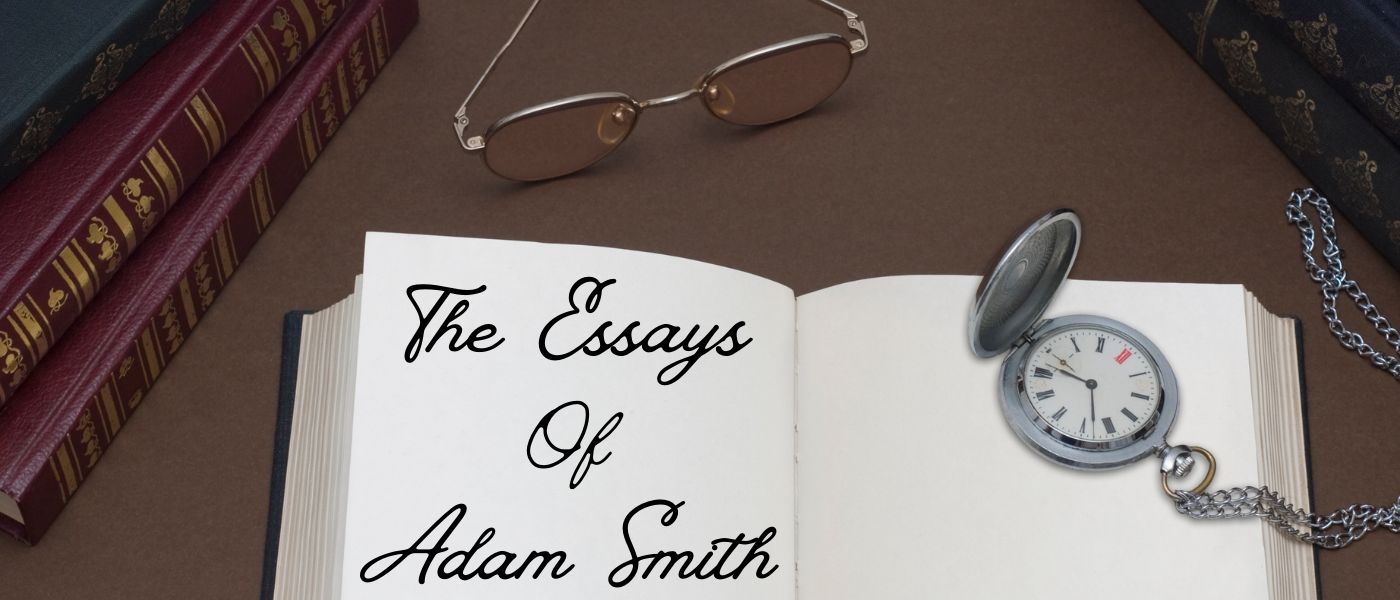 EVEN of the passions derived from the imagination, those which take their origin from a peculiar turn or habit it has acquired.
EVEN of the passions derived from the imagination, those which take their origin from a peculiar turn or habit it has acquired.
43. The Essays of Adam Smith: Part I, SEC. III, Chapter II.
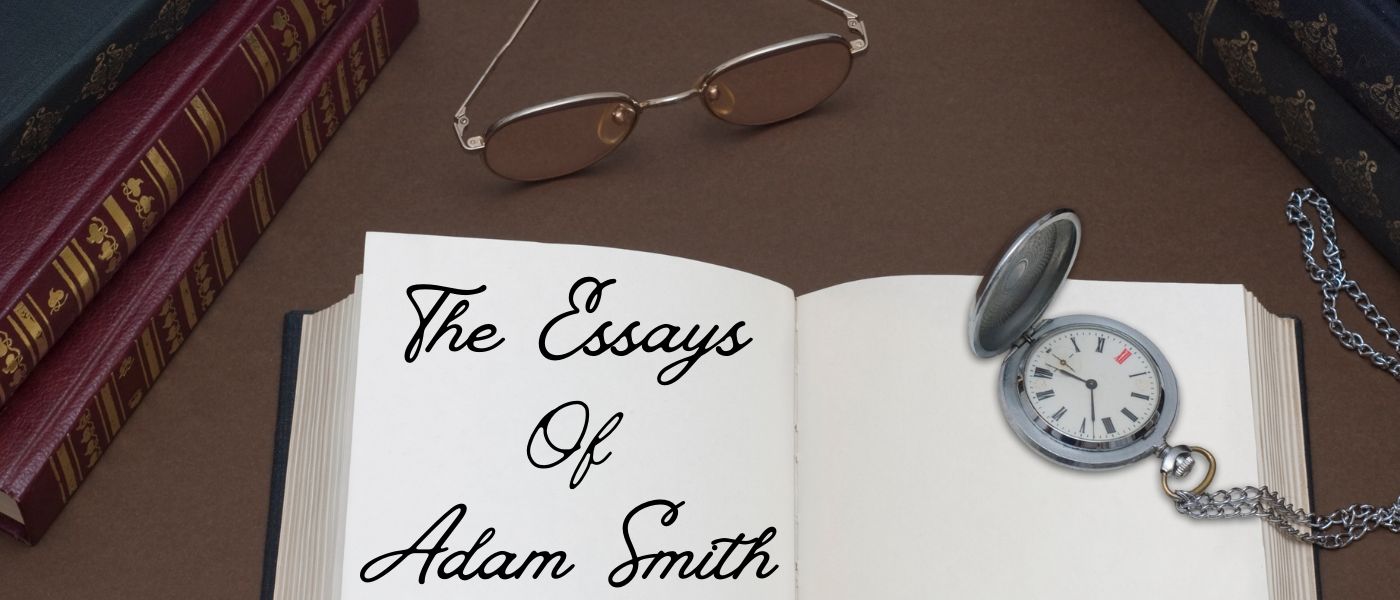 IT is because mankind are disposed to sympathize more entirely with our joy than with our sorrow, that we make parade of our riches, and conceal our poverty.
IT is because mankind are disposed to sympathize more entirely with our joy than with our sorrow, that we make parade of our riches, and conceal our poverty.
[44. The Essays of Adam Smith: Part I,
SEC. I - OF THE SENSE OF PROPRIETY, Chapter I](https://hackernoon.com/the-essays-of-adam-smith-part-i-sec-i-of-the-sense-of-propriety-chapter-i)
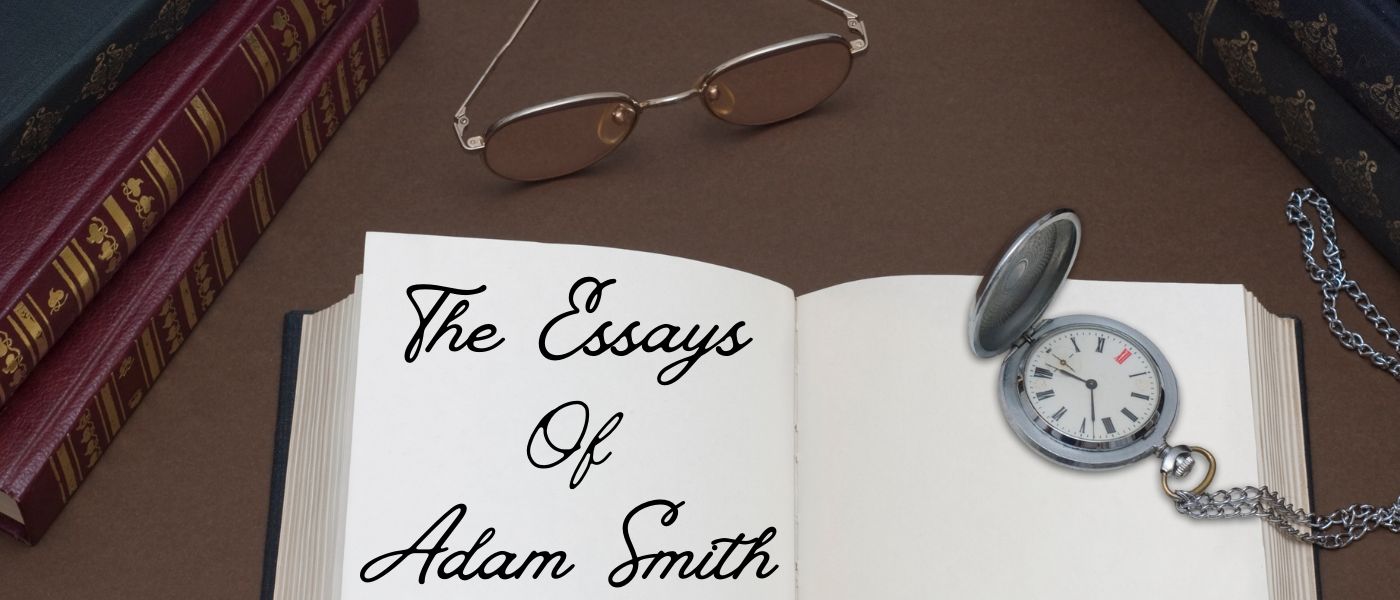 As we have no immediate experience of what other men feel, we can form no idea of the manner in which they are affected.
As we have no immediate experience of what other men feel, we can form no idea of the manner in which they are affected.
45. The Essays of Adam Smith: Part III, Chapter IV.
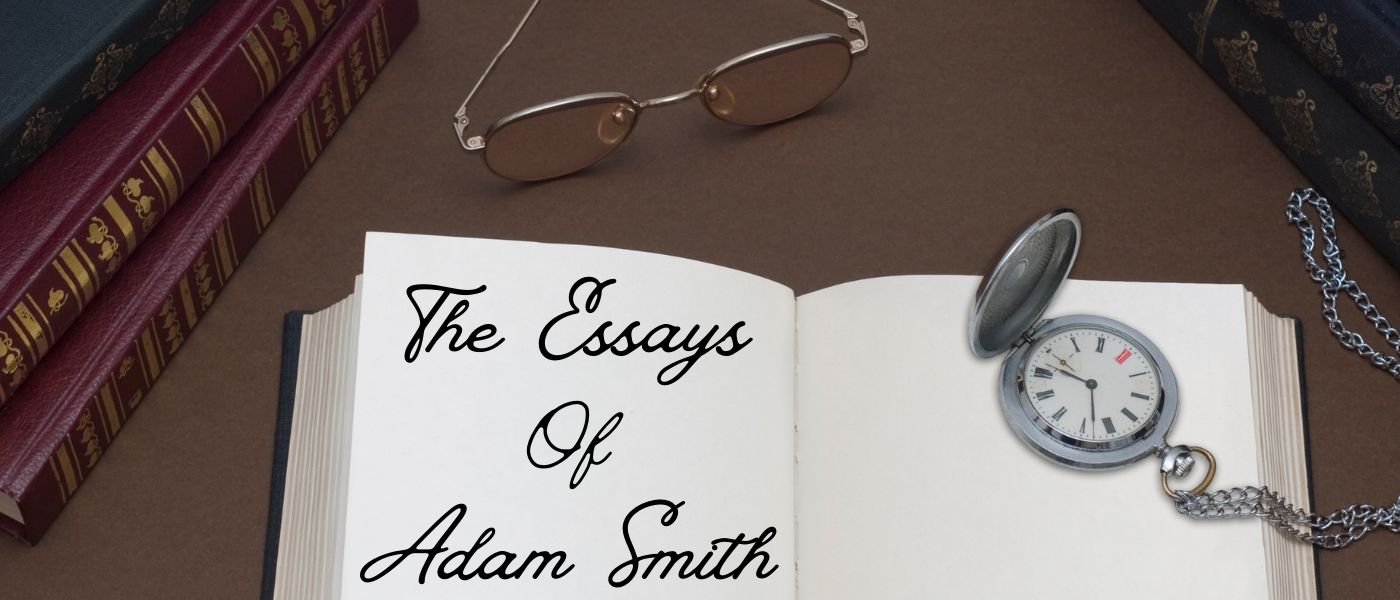 When we are about to act, the eagerness of passion will seldom allow us to consider what we are doing, with the candour of an indifferent person.
When we are about to act, the eagerness of passion will seldom allow us to consider what we are doing, with the candour of an indifferent person.
46. The Essays of Adam Smith: Part III, Chapter VI
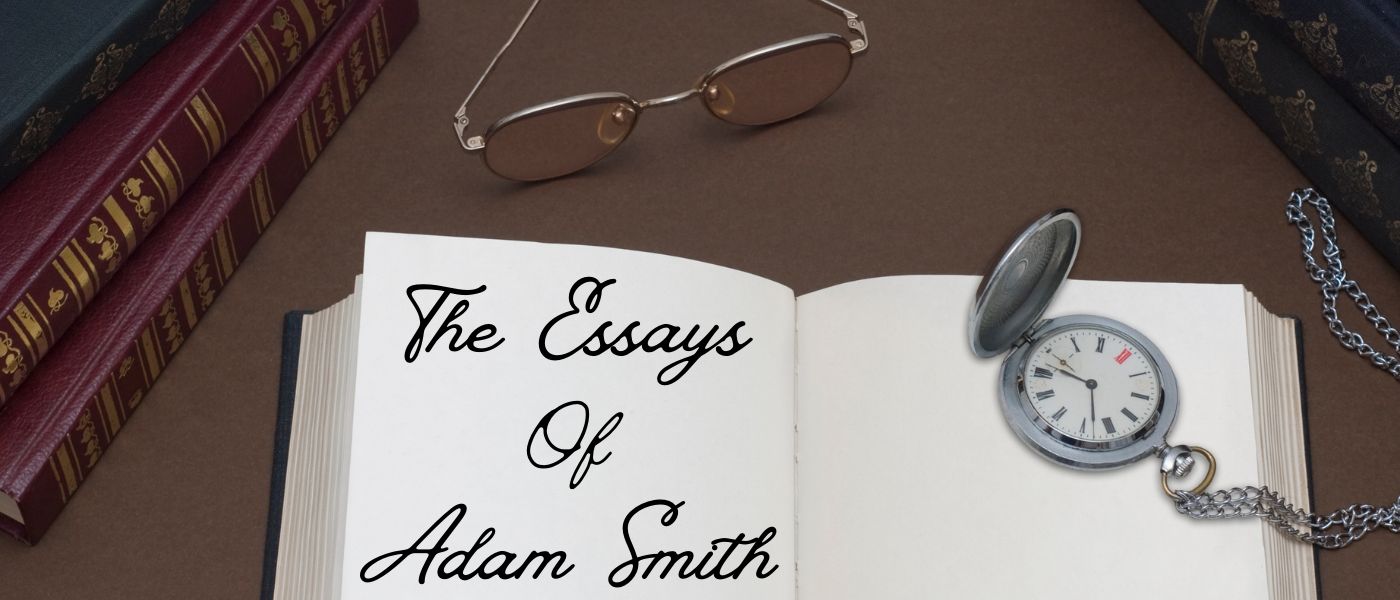 RELIGION affords such strong motives to the practice of virtue, and guards us by such powerful restraints from the temptations of vice.
RELIGION affords such strong motives to the practice of virtue, and guards us by such powerful restraints from the temptations of vice.
47. The Essays of Adam Smith: ADAM SMITH ON THE EXTERNAL SENSES - Of the Sense of HEARING.
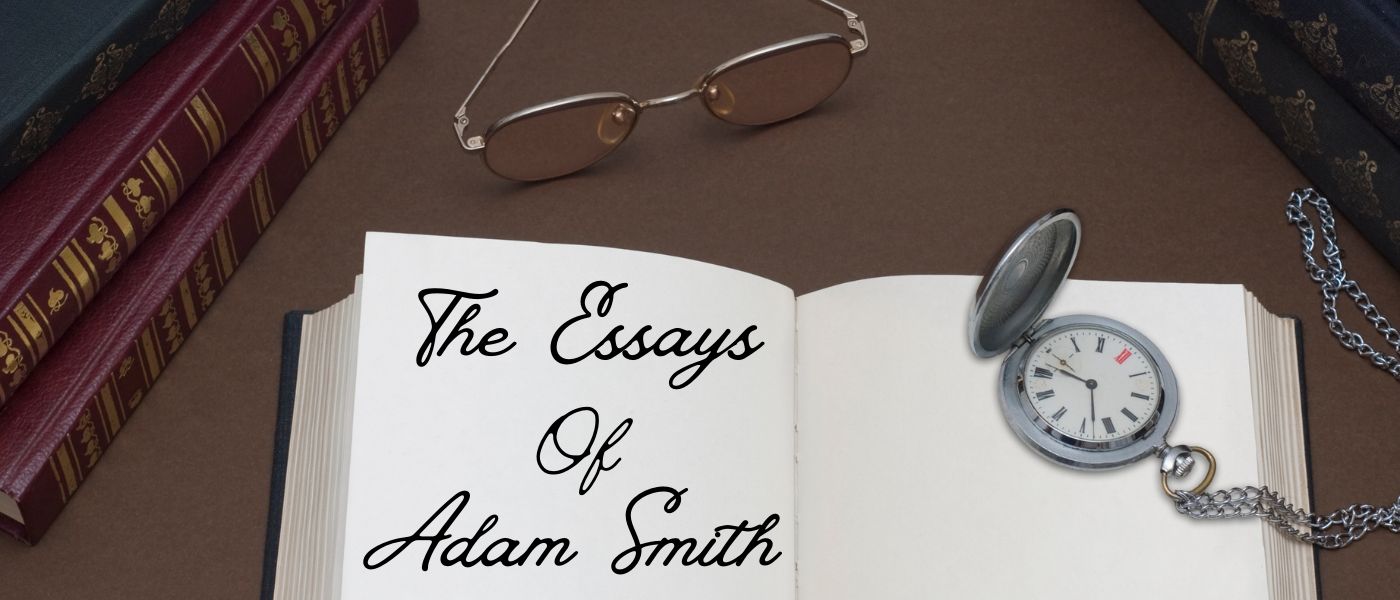 Sound is not naturally felt as resisting or pressing upon the organ, or as in any respect external to, or independent of, the organ.
Sound is not naturally felt as resisting or pressing upon the organ, or as in any respect external to, or independent of, the organ.
48. The Essays of Adam Smith: Part VI, Section II, Chapter I.
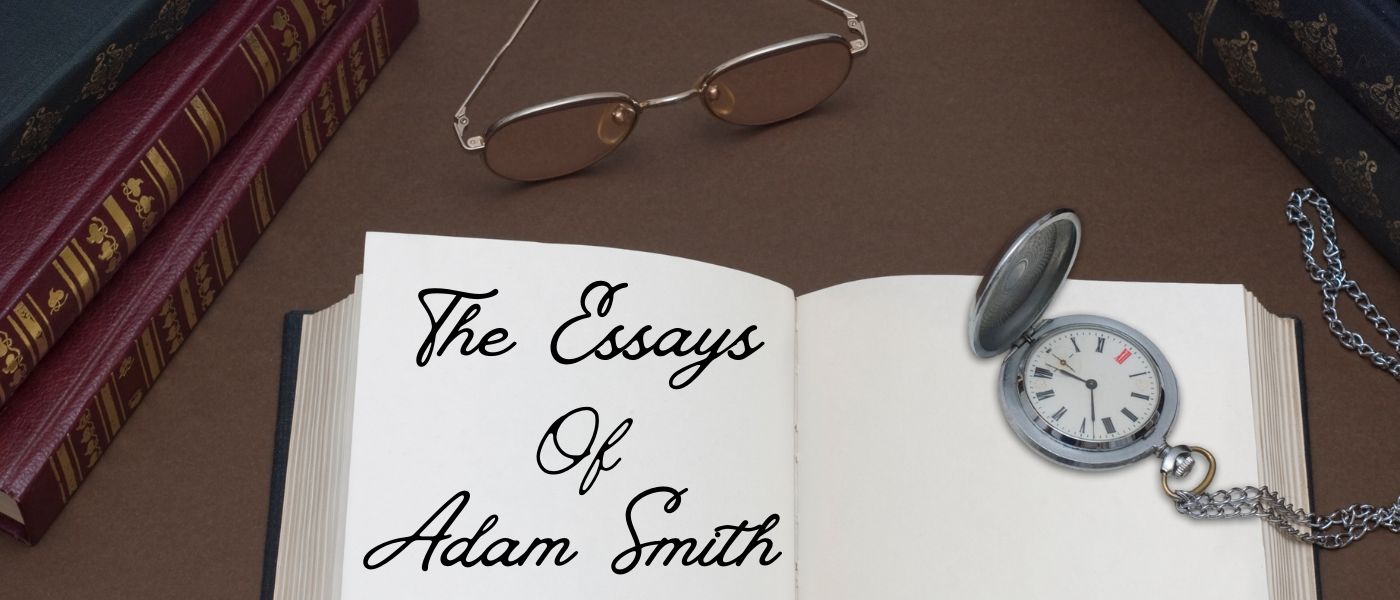 Every man feels his own pleasures and his own pains more sensibly than those of other people.
Every man feels his own pleasures and his own pains more sensibly than those of other people.
49. The Essays of Adam Smith: Part II, SEC. II, Chapter I.
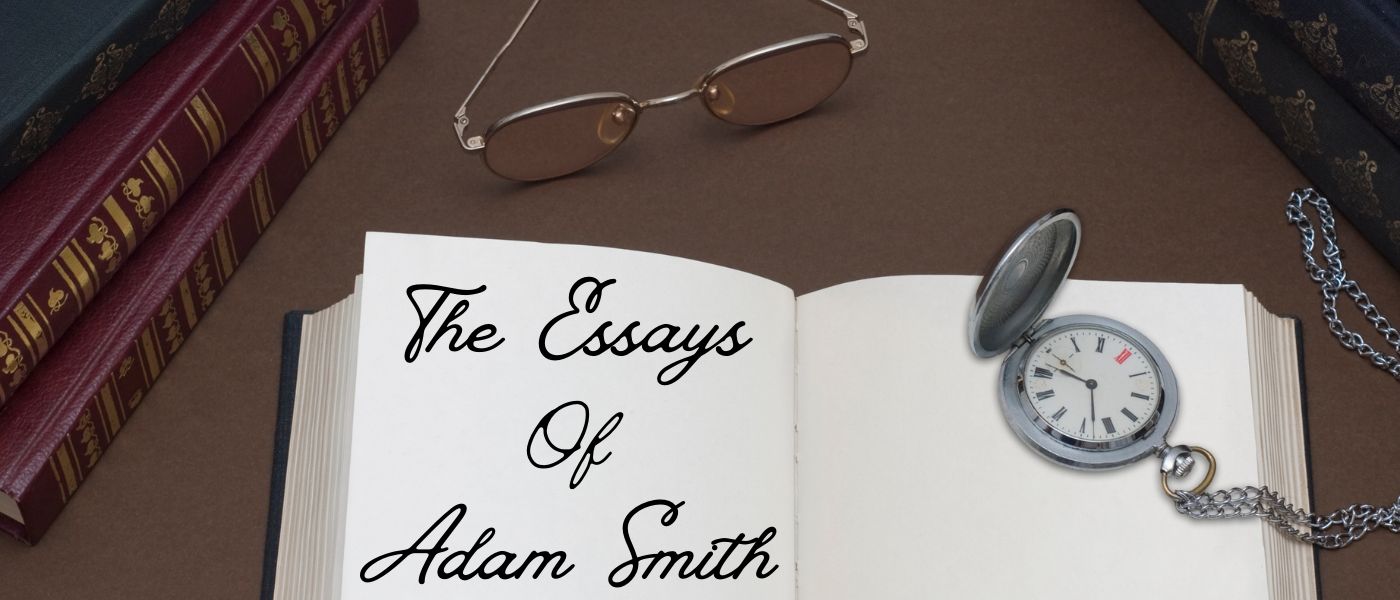 Resentment seems to have been given us by nature for defence, and for defence only.
Resentment seems to have been given us by nature for defence, and for defence only.
50. The Essays of Adam Smith: THE HISTORY OF ASTRONOMY, Section II
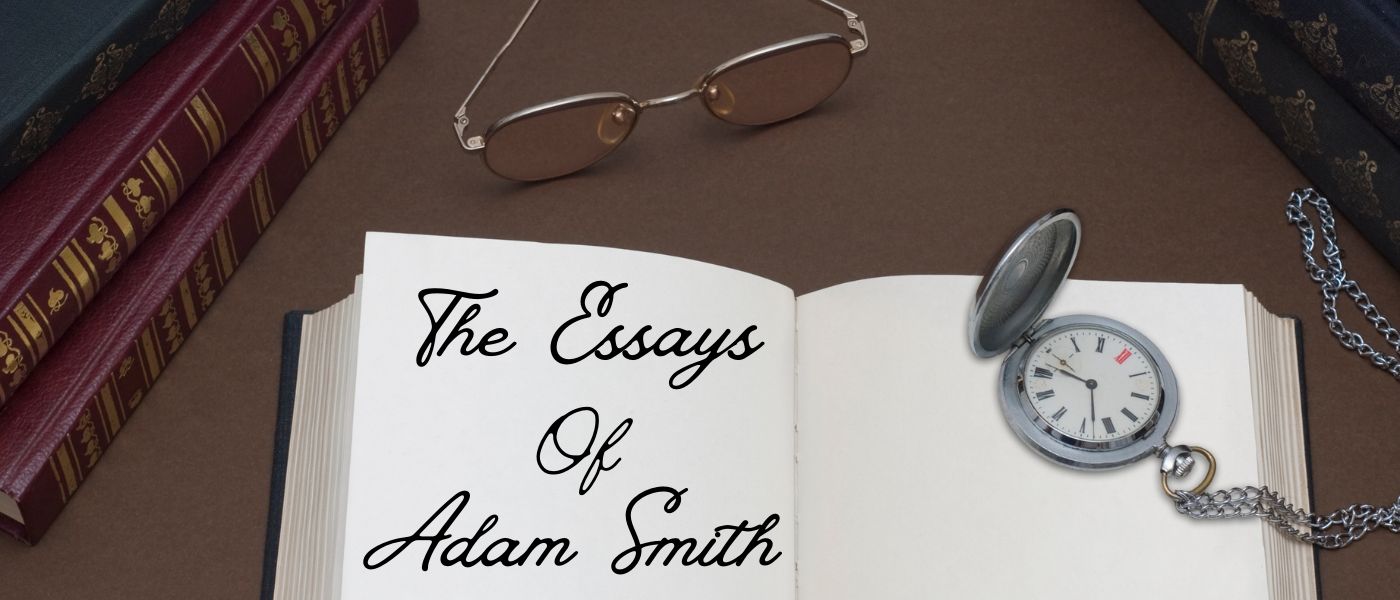 IT is evident that the mind takes pleasure in observing the resemblances that are discoverable betwixt different objects.
IT is evident that the mind takes pleasure in observing the resemblances that are discoverable betwixt different objects.
51. The Essays of Adam Smith: Part II, SEC. II, Chapter III
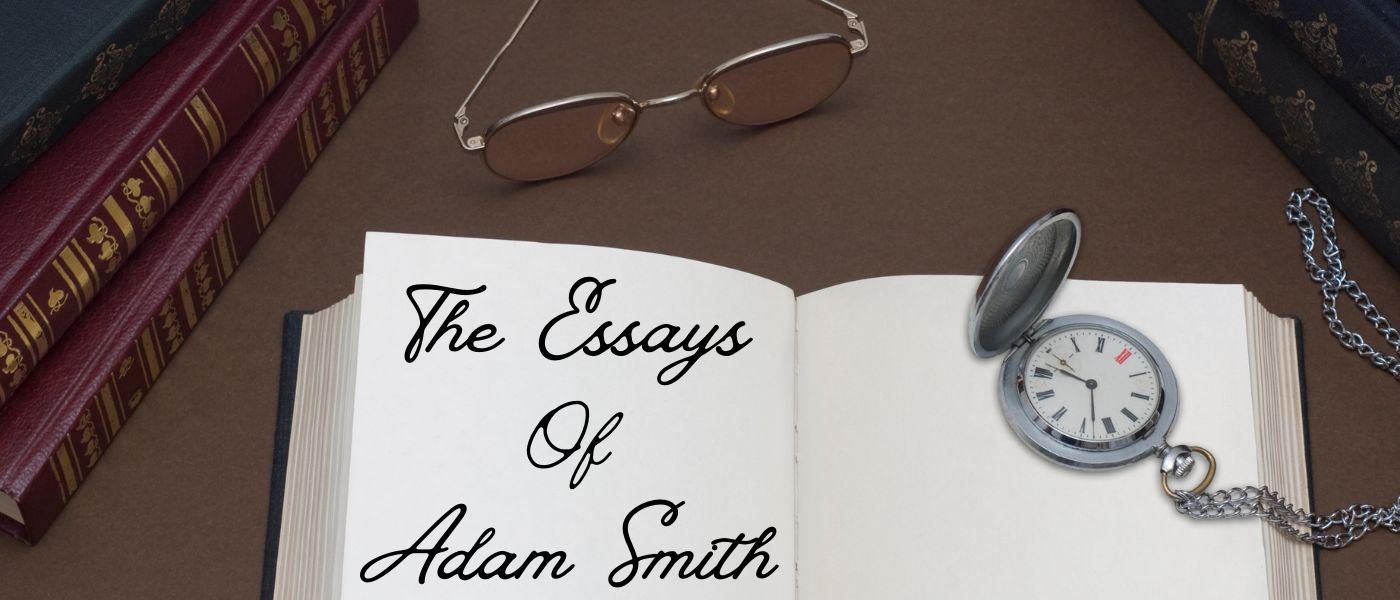 IT is thus that man, who can subsist only in society, was fitted by nature to that situation for which he was made.
IT is thus that man, who can subsist only in society, was fitted by nature to that situation for which he was made.
52. The Essays of Adam Smith: Part II, SEC. III, Chapter II - Of the Extent of this Influence of Fortune
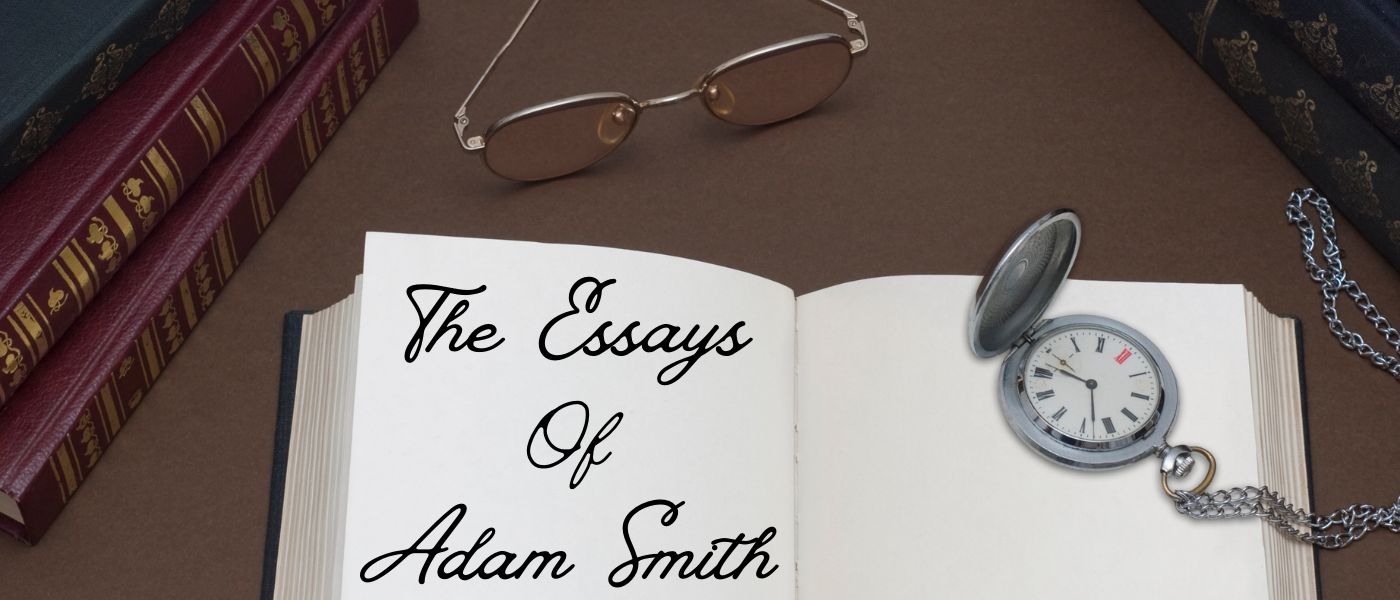 THE effect of this influence of fortune is, first, to diminish our sense of the merit or demerit of those actions which arose from the most blamable intentions
THE effect of this influence of fortune is, first, to diminish our sense of the merit or demerit of those actions which arose from the most blamable intentions
53. The Essays of Adam Smith: Part IV, Chapter I
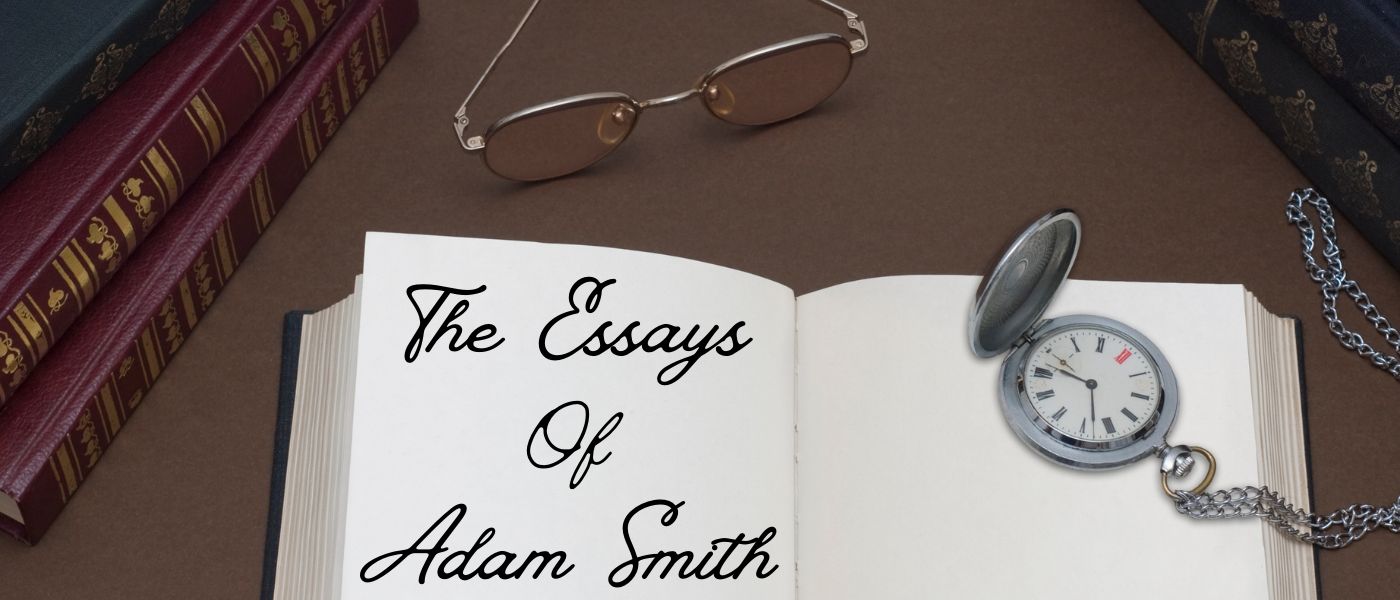 Of the Beauty which the Appearance of Utility bestows upon all the Productions of Art, and of the extensive Influence of this Species of Beauty.
Of the Beauty which the Appearance of Utility bestows upon all the Productions of Art, and of the extensive Influence of this Species of Beauty.
54. The Essays of Adam Smith: Part III, Chapter V
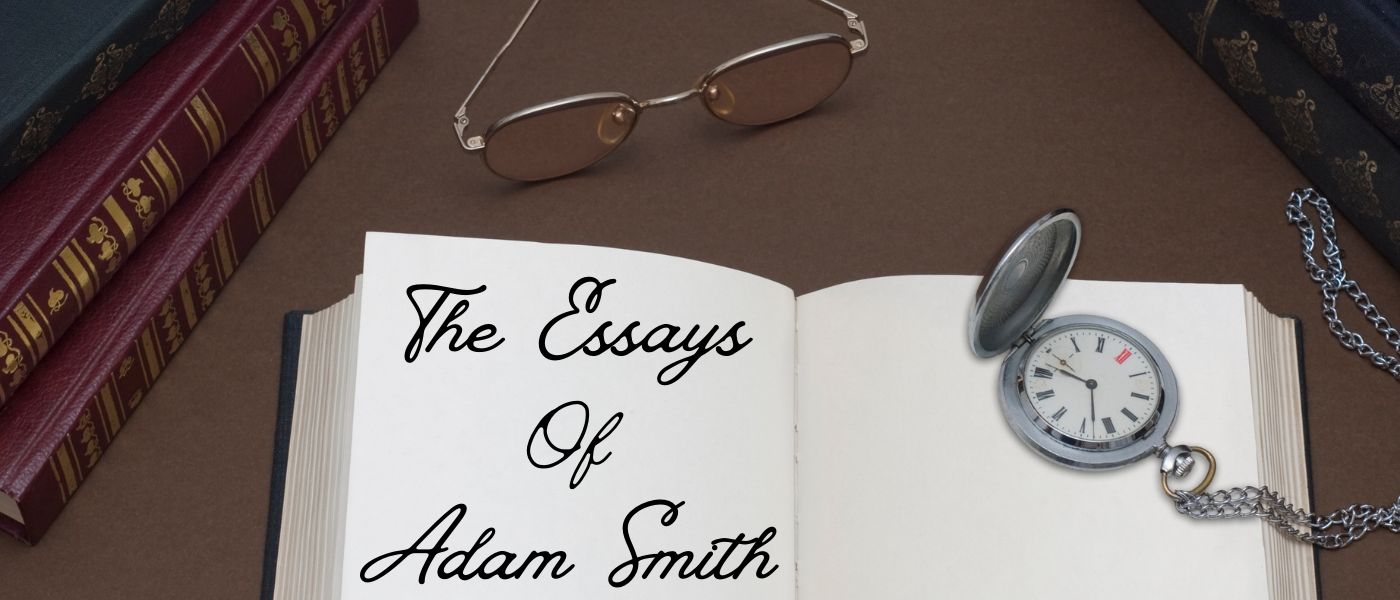 The man who has received great benefits from another person may by the natural coldness of his temper,feel but a very small degree of the sentiment of gratitude
The man who has received great benefits from another person may by the natural coldness of his temper,feel but a very small degree of the sentiment of gratitude
55. The Essays of Adam Smith: OF THE AFFINITY BETWEEN CERTAIN ENGLISH AND ITALIAN VERSES
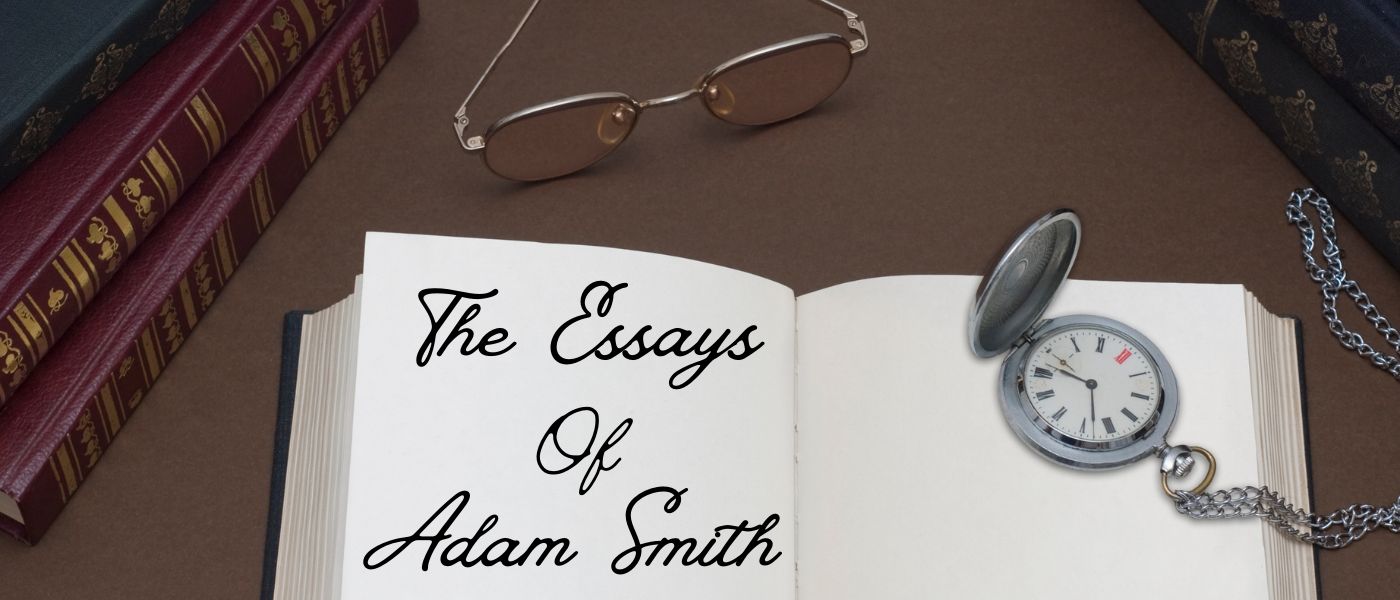 Worth makes the man, and want of it the fellow;
The rest is all but leather or prunello;
Worth makes the man, and want of it the fellow;
The rest is all but leather or prunello;
56. The Essays of Adam Smith: Part VII, Section II
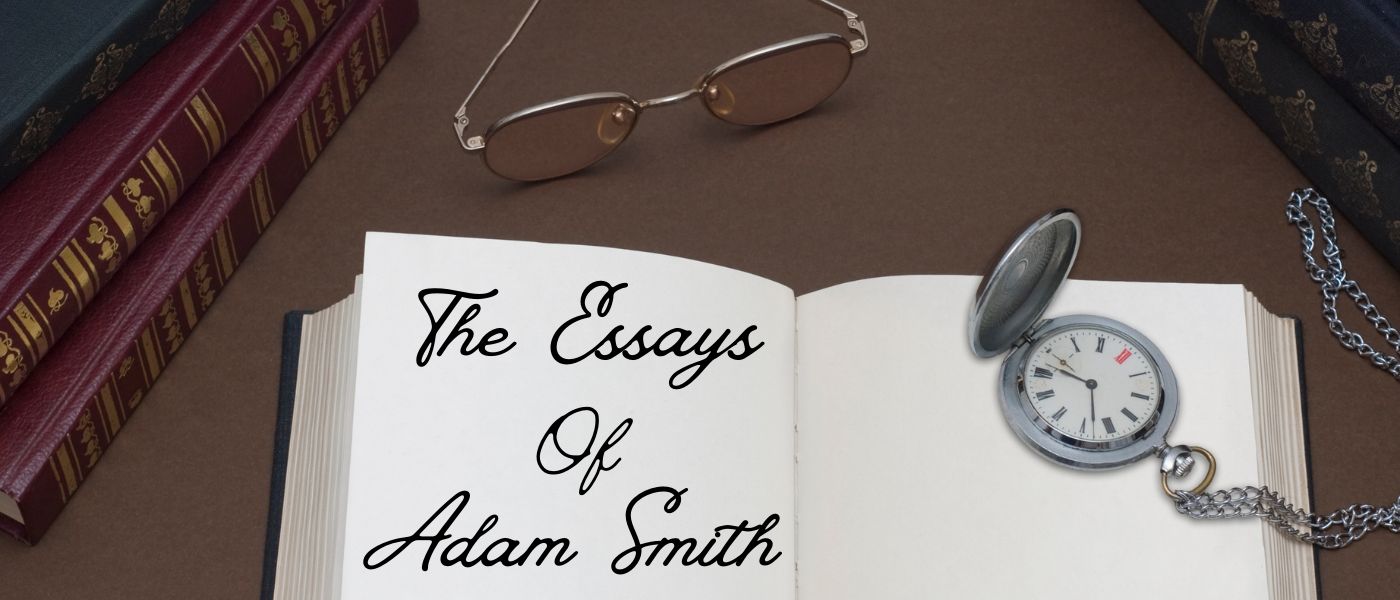 The great division of our affections is into the selfish and the benevolent.
The great division of our affections is into the selfish and the benevolent.
57. The Essays of Adam Smith: Part V, Chapter II
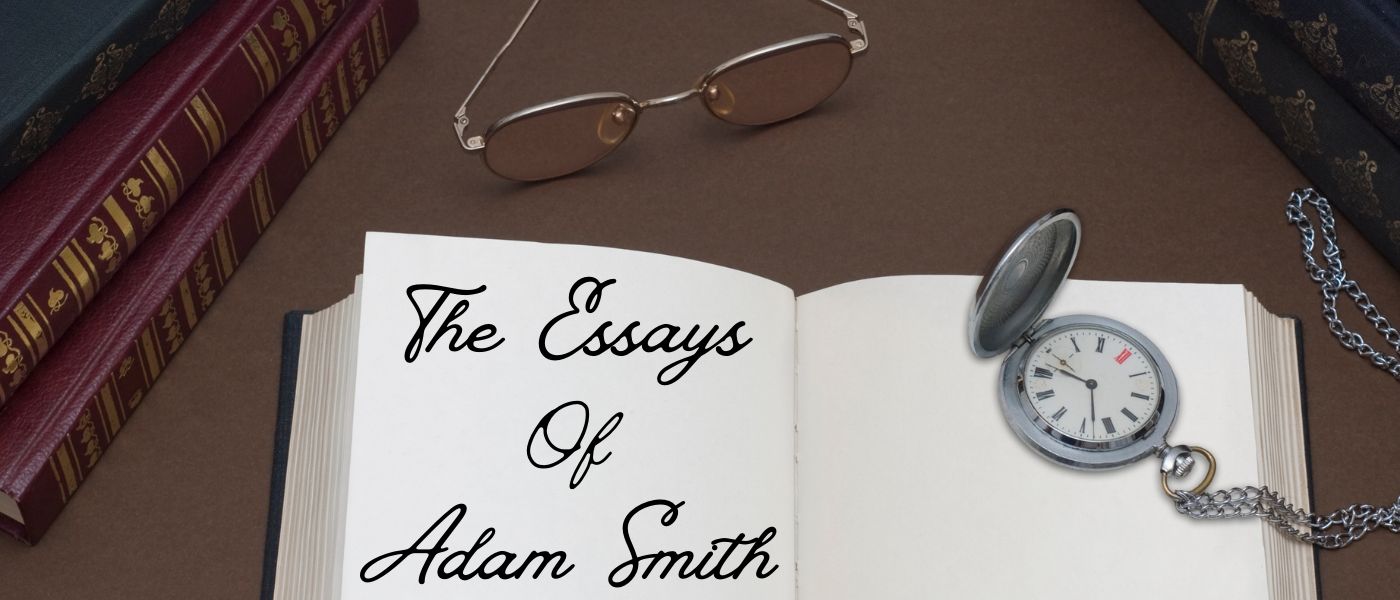 Of the Influence of Custom and Fashion upon Moral Sentiments.
Of the Influence of Custom and Fashion upon Moral Sentiments.
58. The Essays of Adam Smith: Part VI, Section II, Chapter III - Of Universal Benevolence
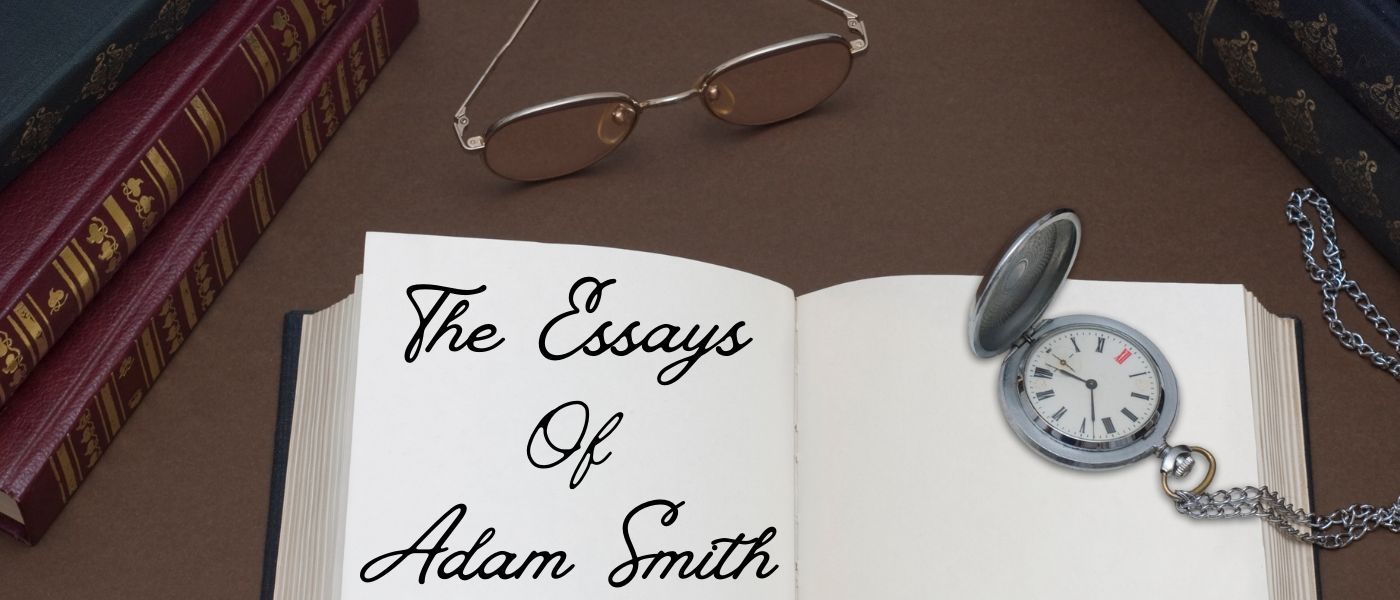 The wise and virtuous man is at all times willing that his own private interest should be sacrificed to the public interest of his own particular order or soci
The wise and virtuous man is at all times willing that his own private interest should be sacrificed to the public interest of his own particular order or soci
59. The Essays of Adam Smith: Part VI - Of the Character of Virtue, Section I
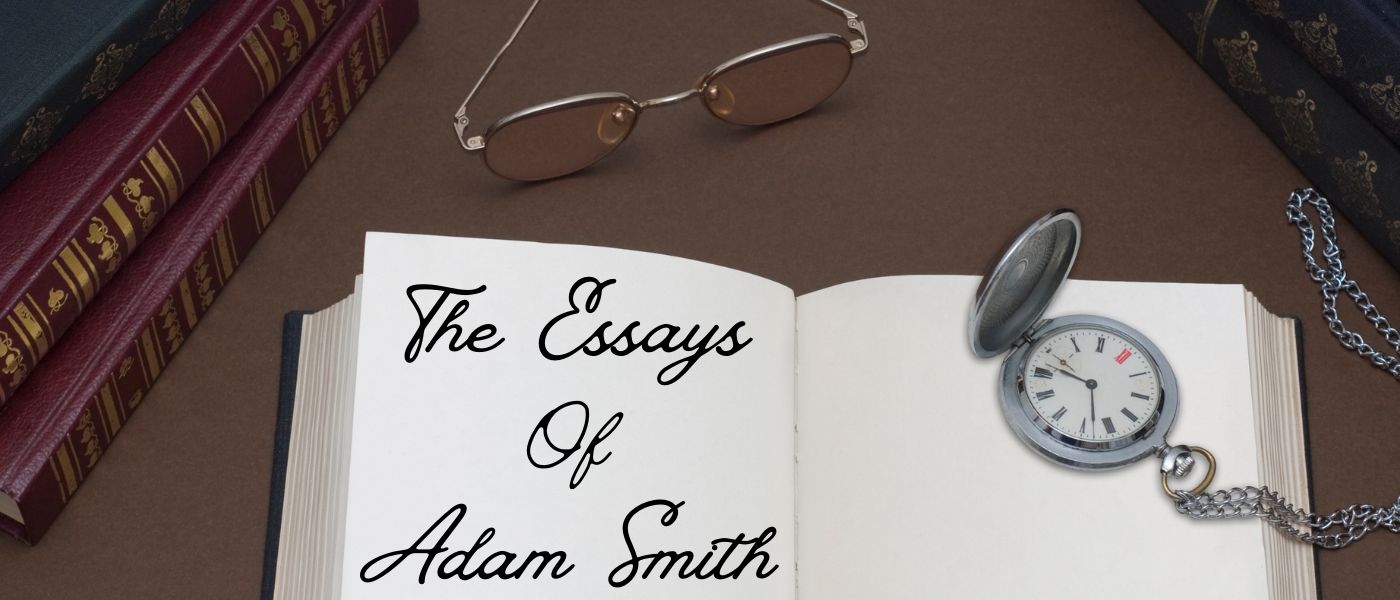 THE preservation and healthful state of the body seem to be the objects which Nature first recommends to the care of every individual.
THE preservation and healthful state of the body seem to be the objects which Nature first recommends to the care of every individual.
60. The Essays of Adam Smith: Part III, Chapter II
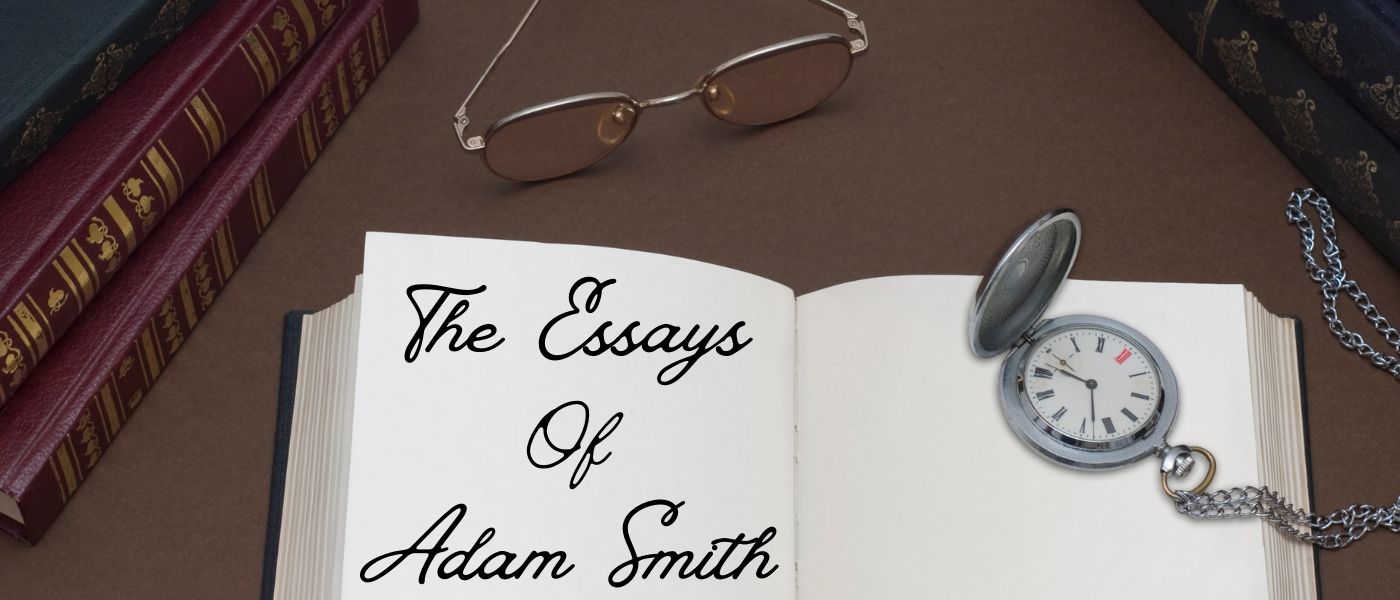 MAN naturally desires, not only to be loved, but to be lovely; or to be that thing which is the natural and proper object of love.
MAN naturally desires, not only to be loved, but to be lovely; or to be that thing which is the natural and proper object of love.
61. The History of Ancient Physics
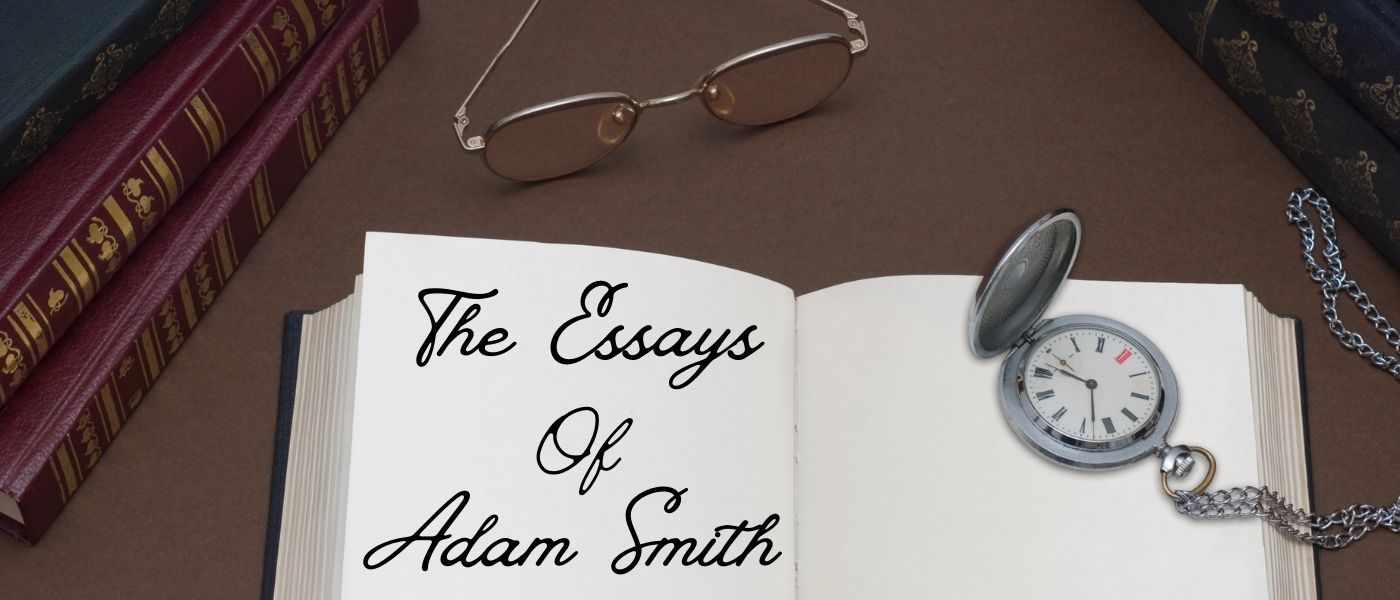 The species of objects in the Heavens are few in number; the Sun, the Moon, the Planets, and the Fixed Stars, are all which those philosophers could distinguish
The species of objects in the Heavens are few in number; the Sun, the Moon, the Planets, and the Fixed Stars, are all which those philosophers could distinguish
62. The Essays of Adam Smith: Part VI, Section II, Chapter II
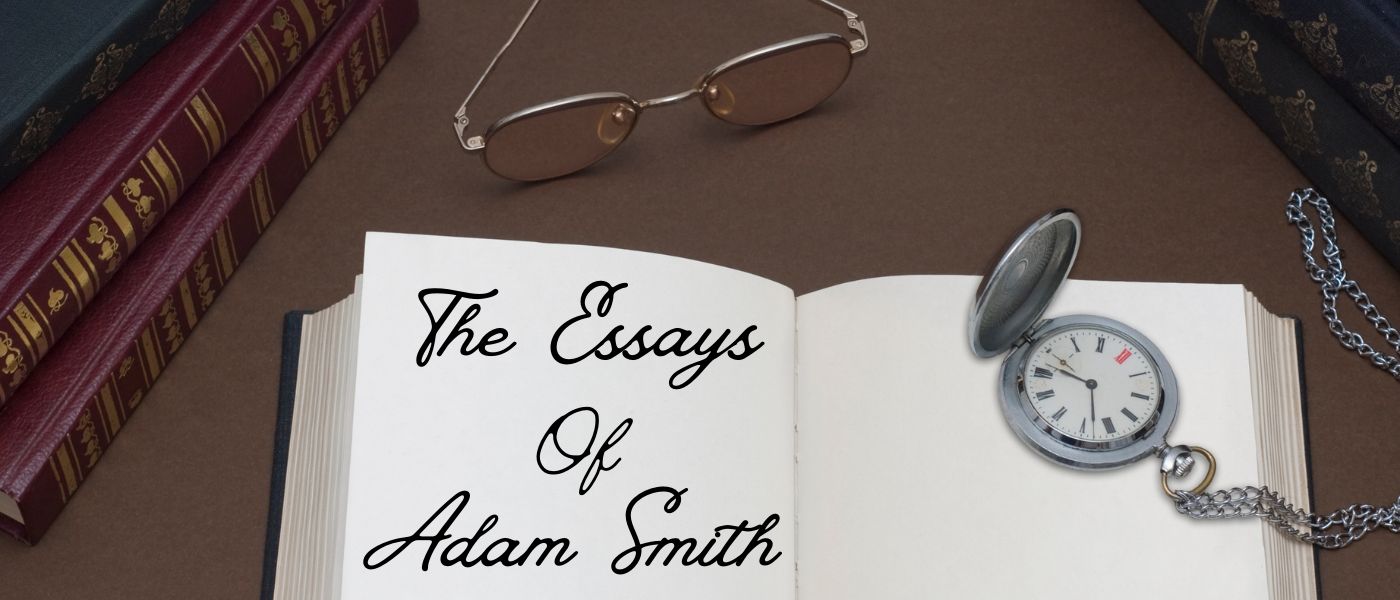 All the pleasures and pains of the mind were, according to Epicurus, ultimately derived from those of the body.
All the pleasures and pains of the mind were, according to Epicurus, ultimately derived from those of the body.
63. The Essays of Adam Smith: Part VII, Section IV
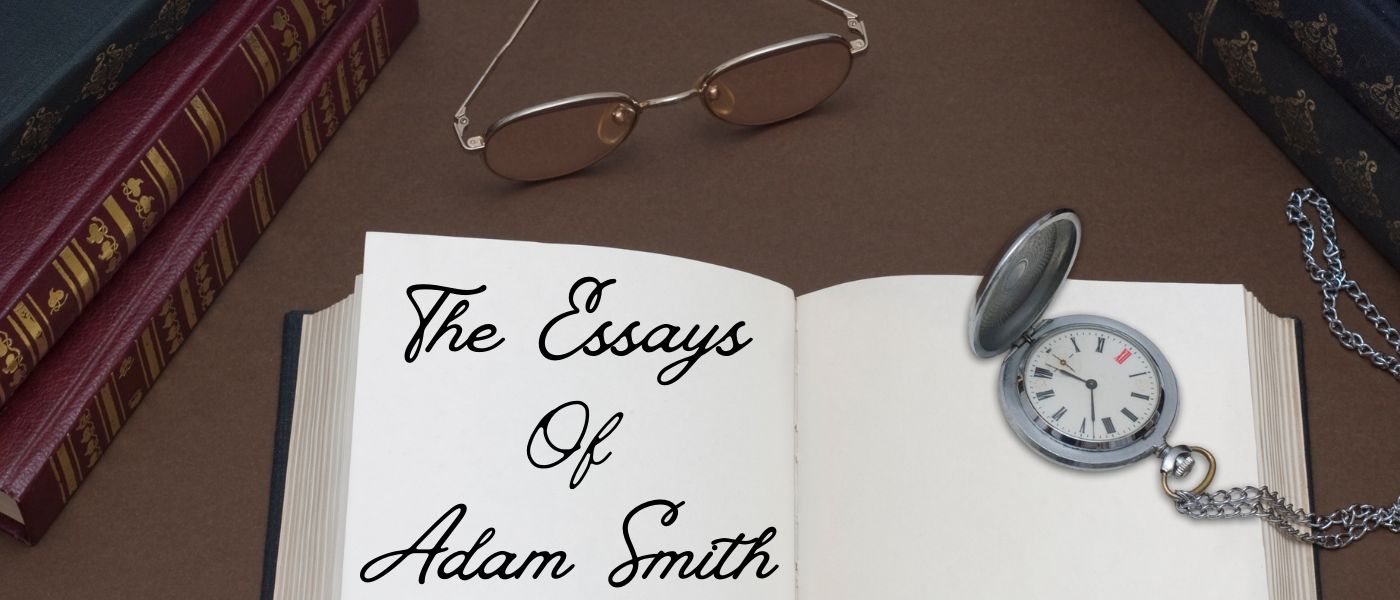 To describe, in a general manner, what is the ordinary way of acting to which each virtue would prompt us, is still more easy.
To describe, in a general manner, what is the ordinary way of acting to which each virtue would prompt us, is still more easy.
64. The Essays of Adam Smith: THE IMITATIVE ARTS - Part II
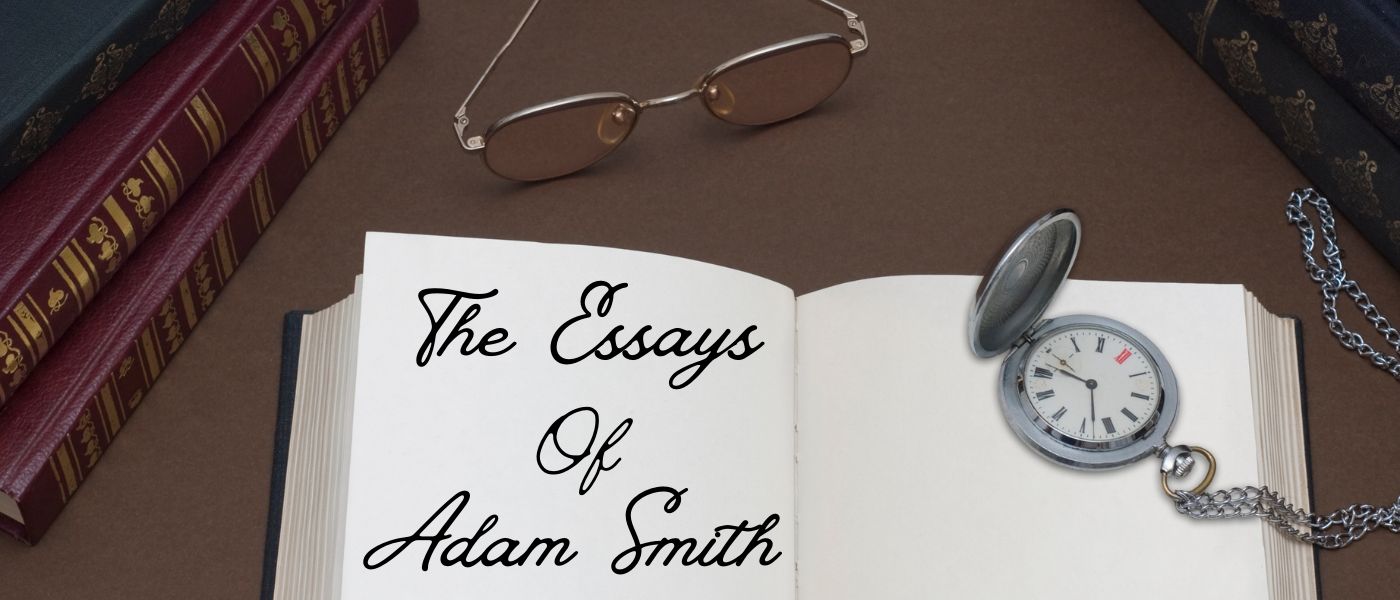
AFTER the pleasures which arise from the gratification of the bodily appetites, there seem to be none more natural to man than Music and Dancing.
65. The Essays of Adam Smith: THE IMITATIVE ARTS - Part I
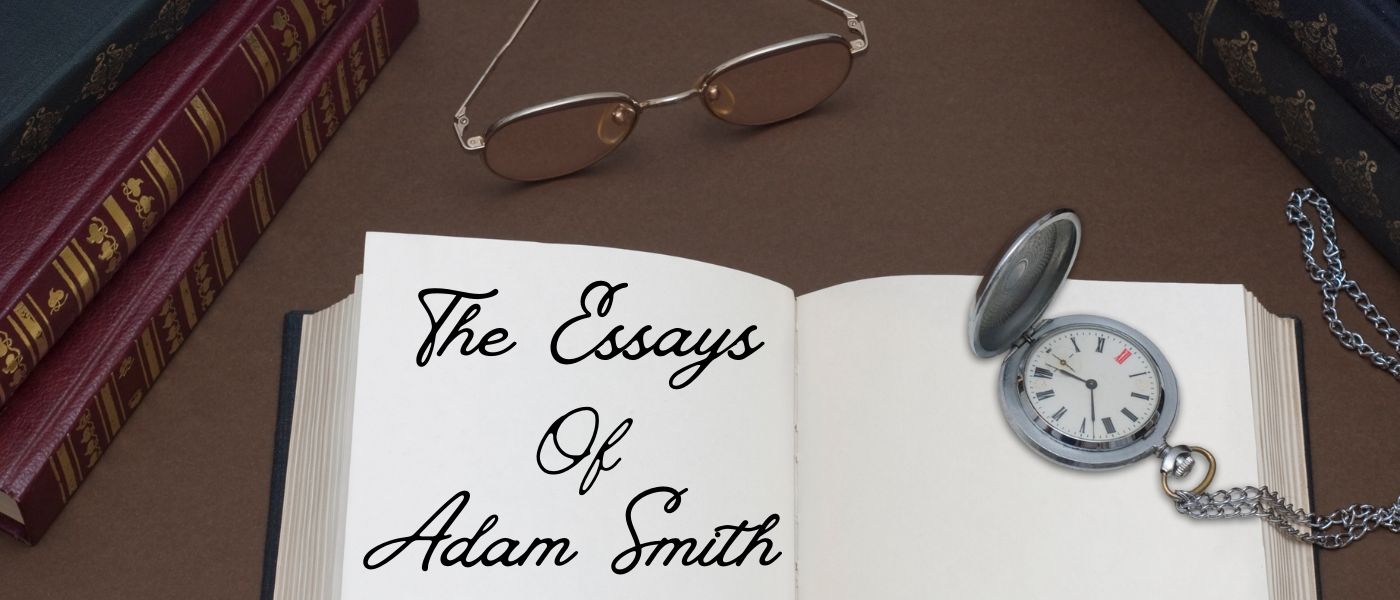 THE most perfect imitation of an object of any kind must in all cases, it is evident, be another object of the same kind, made as exactly
THE most perfect imitation of an object of any kind must in all cases, it is evident, be another object of the same kind, made as exactly
66. The Essays of Adam Smith: Part III, Chapter III - Of the Influence and Authority of Conscience.
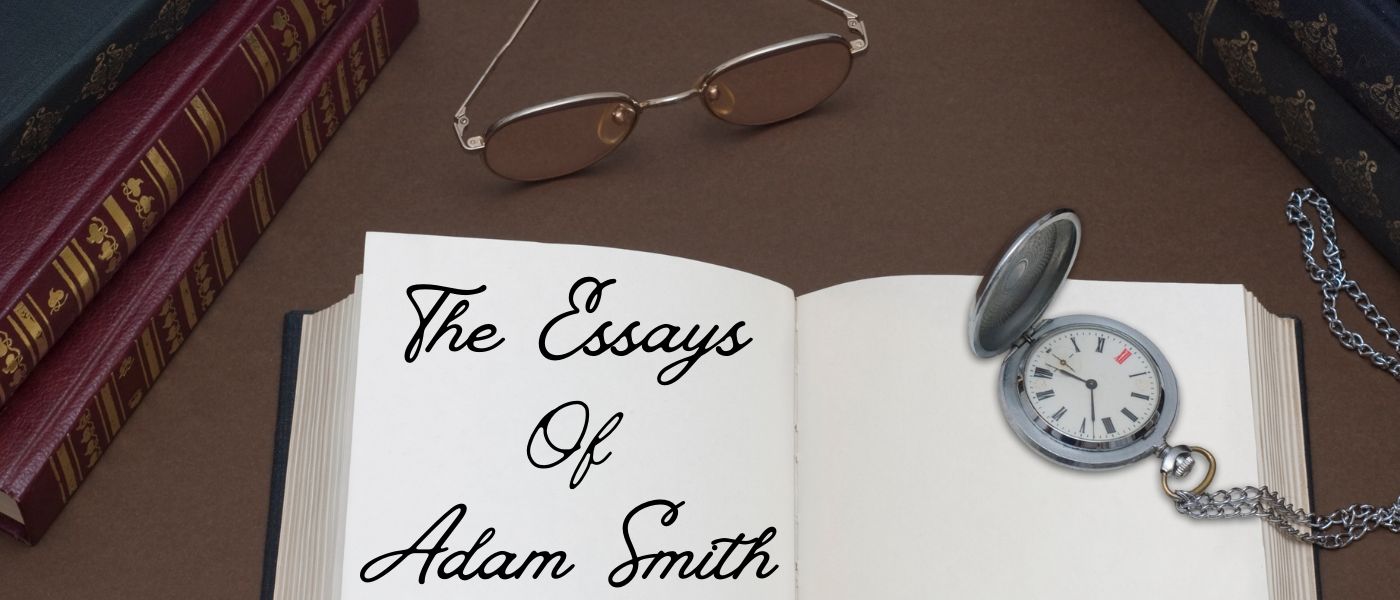 It is never objected to us that we have too little fellow-feeling with the joy of success.
It is never objected to us that we have too little fellow-feeling with the joy of success.
67. The Essays of Adam Smith: THE HISTORY OF THE ANCIENT LOGICS AND METAPHYSICS
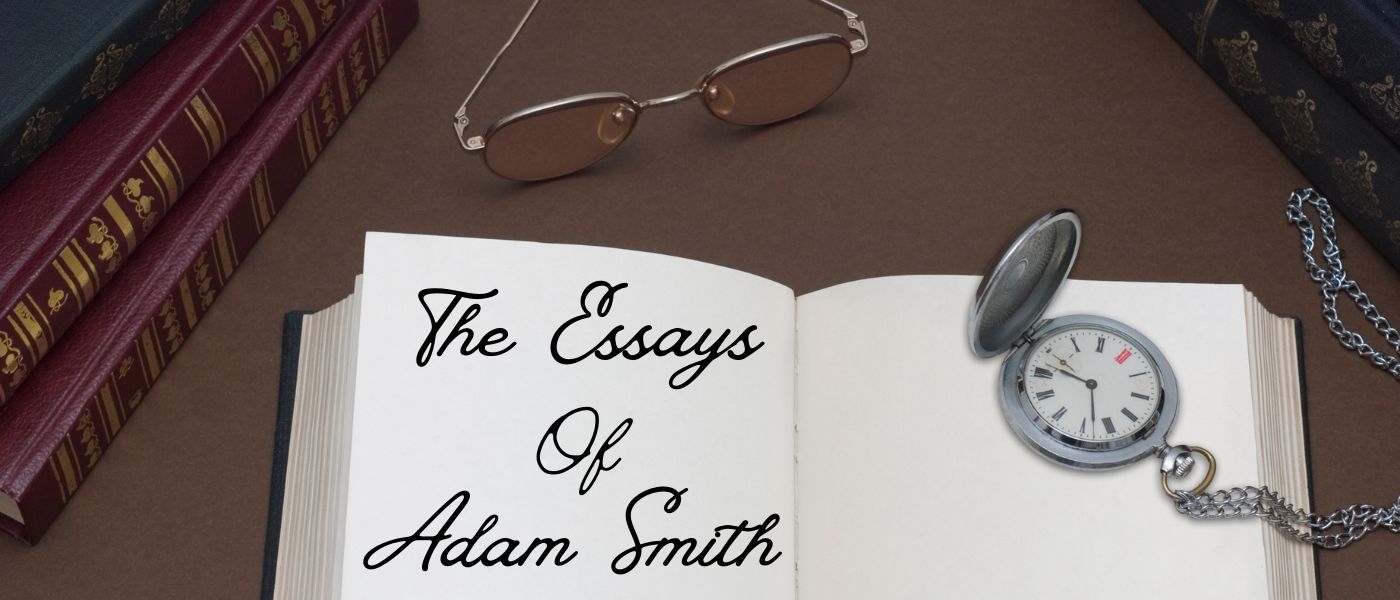 According to Plato and Timæus, the principles out of which the Deity formed the World, and which were themselves eternal, were three in number.
According to Plato and Timæus, the principles out of which the Deity formed the World, and which were themselves eternal, were three in number.
68. The Essays of Adam Smith: CONSIDERATIONS CONCERNING THE FORMATION OF LANGUAGES
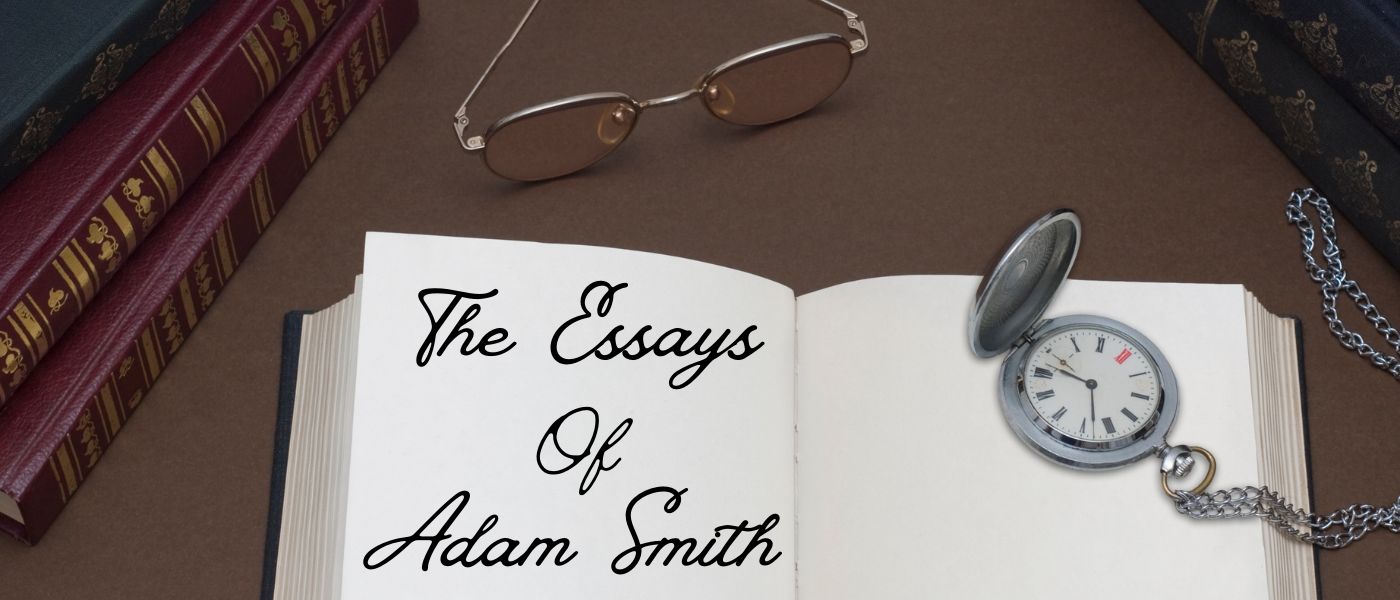 It was the river, he said, and he never heard any other name for it.
It was the river, he said, and he never heard any other name for it.
69. The Essays of Adam Smith: Part VII, Section II, Chapter I
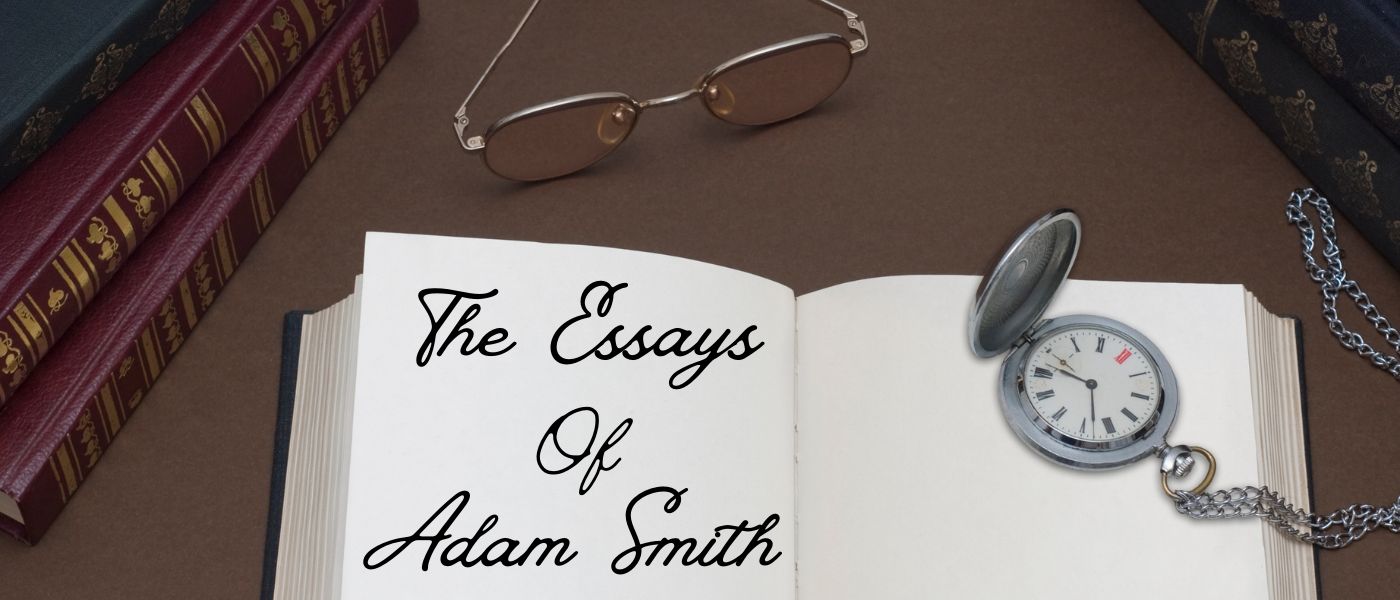 In the system of Plato the soul is considered as something like a little state or republic, composed of three different faculties or orders.
In the system of Plato the soul is considered as something like a little state or republic, composed of three different faculties or orders.
70. The Essays of Adam Smith: Part VI, Section III - OF SELF-COMMAND
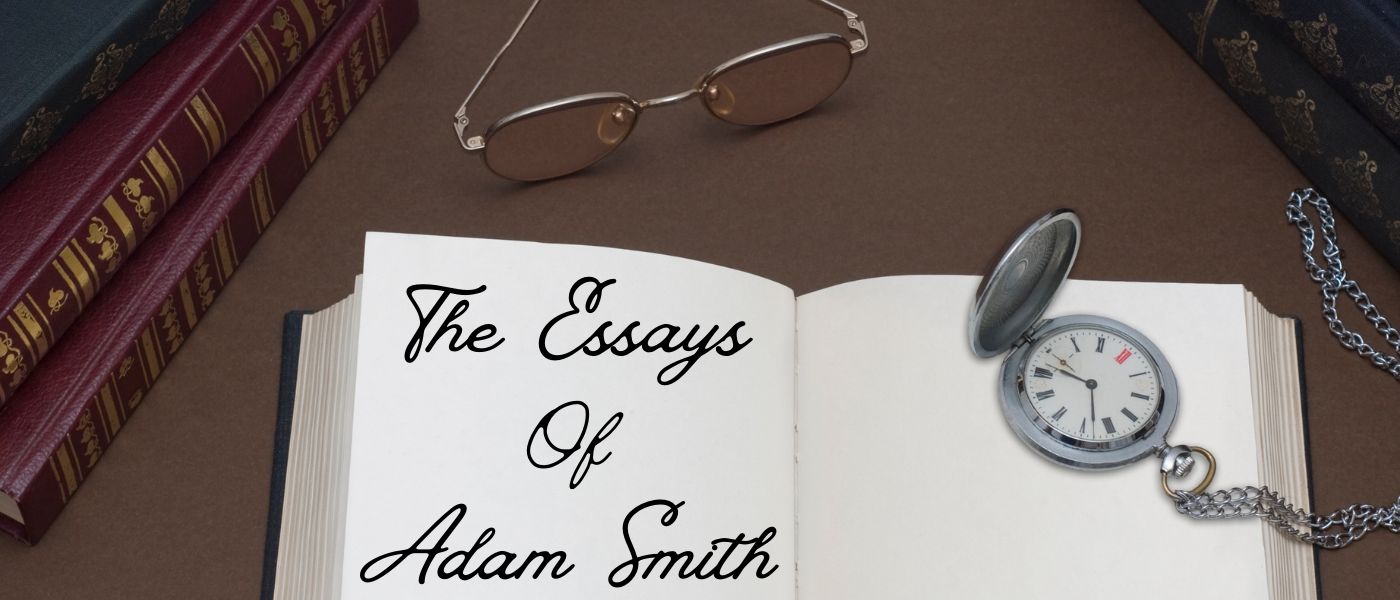 THE man who acts according to the rules of perfect prudence, of strict justice, and of proper benevolence, may be said to be perfectly virtuous.
THE man who acts according to the rules of perfect prudence, of strict justice, and of proper benevolence, may be said to be perfectly virtuous.
71. The Essays of Adam Smith: ADAM SMITH ON THE EXTERNAL SENSES - Of the Sense of SEEING.
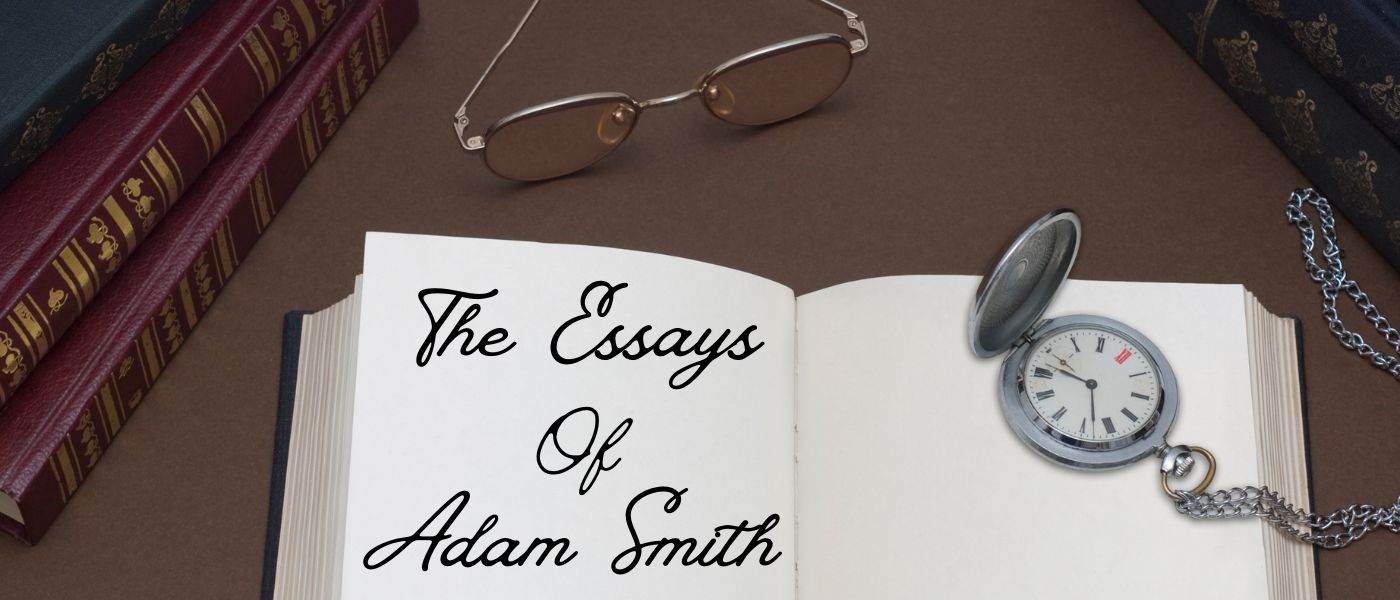 That the objects of Sight are not perceived as resisting or pressing upon the organ which perceives them, is sufficiently obvious.
That the objects of Sight are not perceived as resisting or pressing upon the organ which perceives them, is sufficiently obvious.
72. The Essays of Adam Smith: THE HISTORY OF ASTRONOMY, Section IV
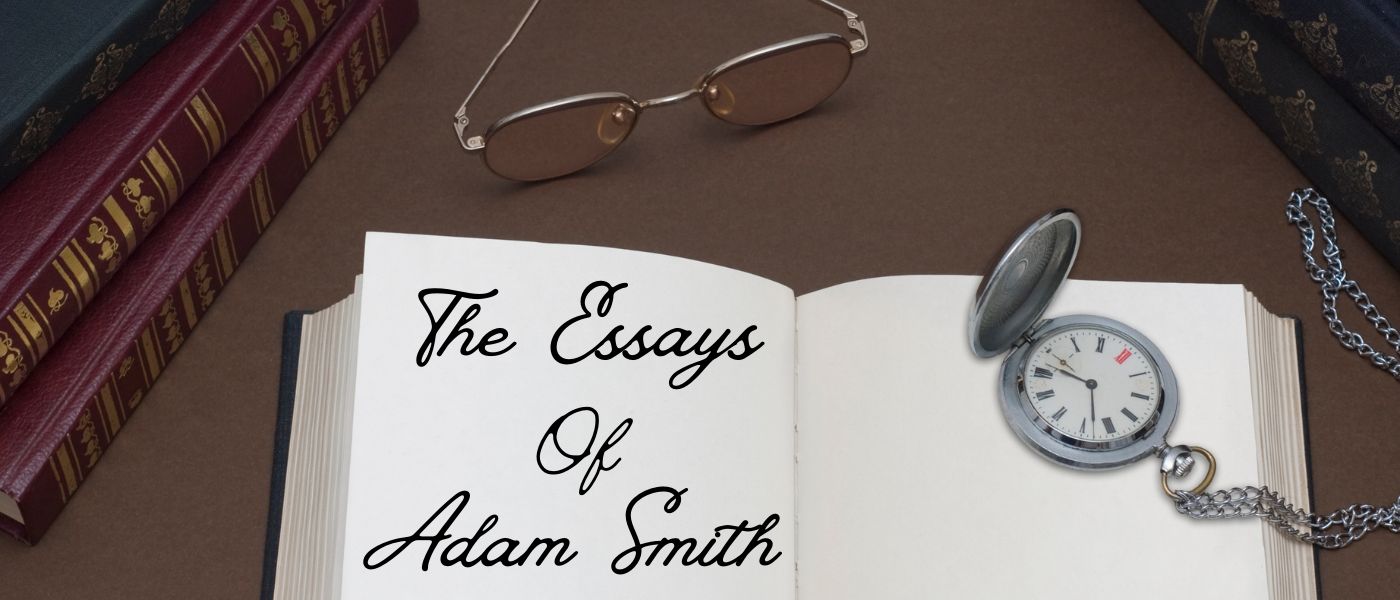 OF all the phenomena of nature, the celestial appearances are, by their greatness and beauty, the most universal objects of the curiosity of mankind.
OF all the phenomena of nature, the celestial appearances are, by their greatness and beauty, the most universal objects of the curiosity of mankind.
Thank you for checking out the 72 most read stories about Adam Smith on HackerNoon.
Visit the /Learn Repo to find the most read stories about any technology.

